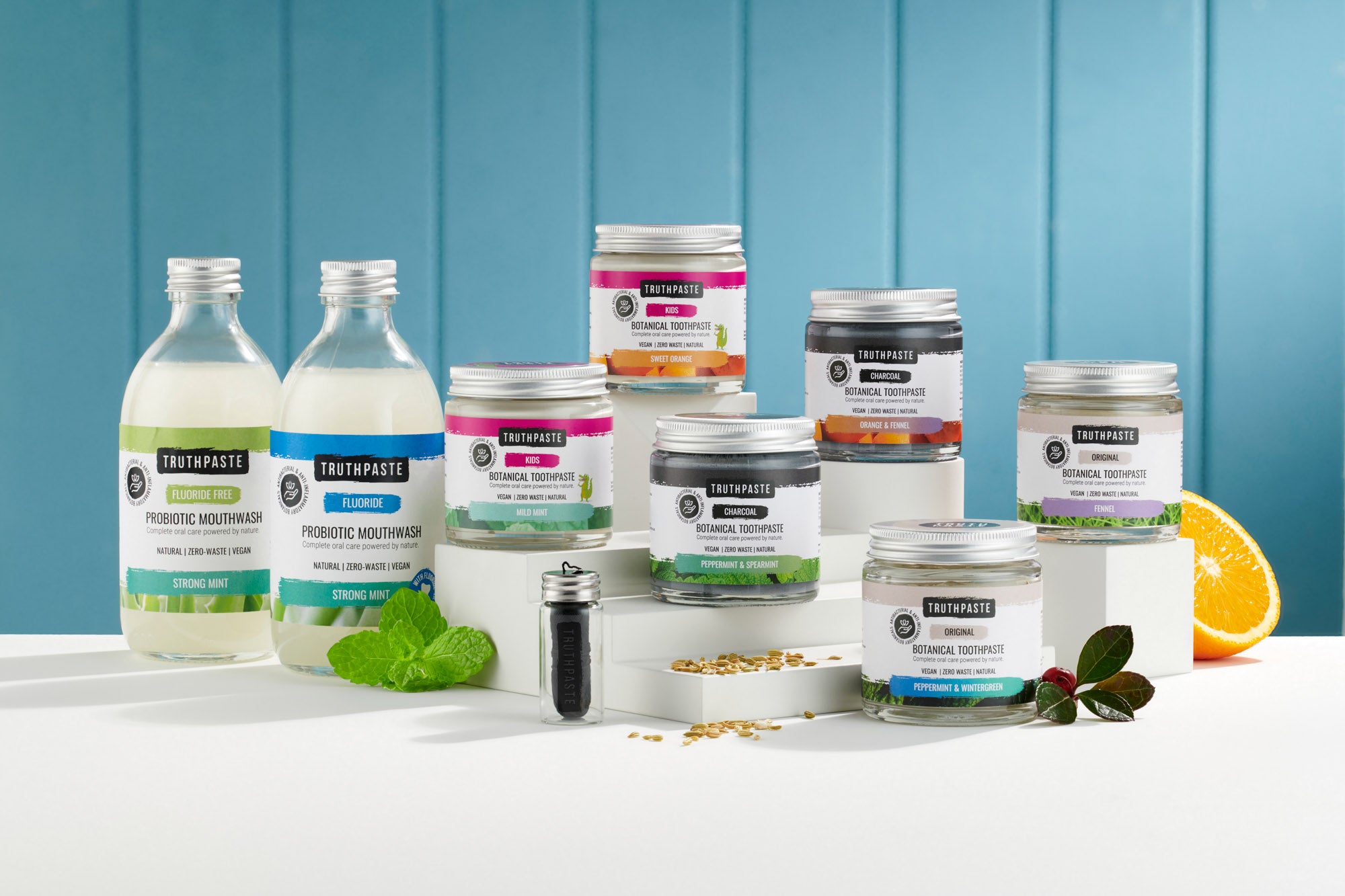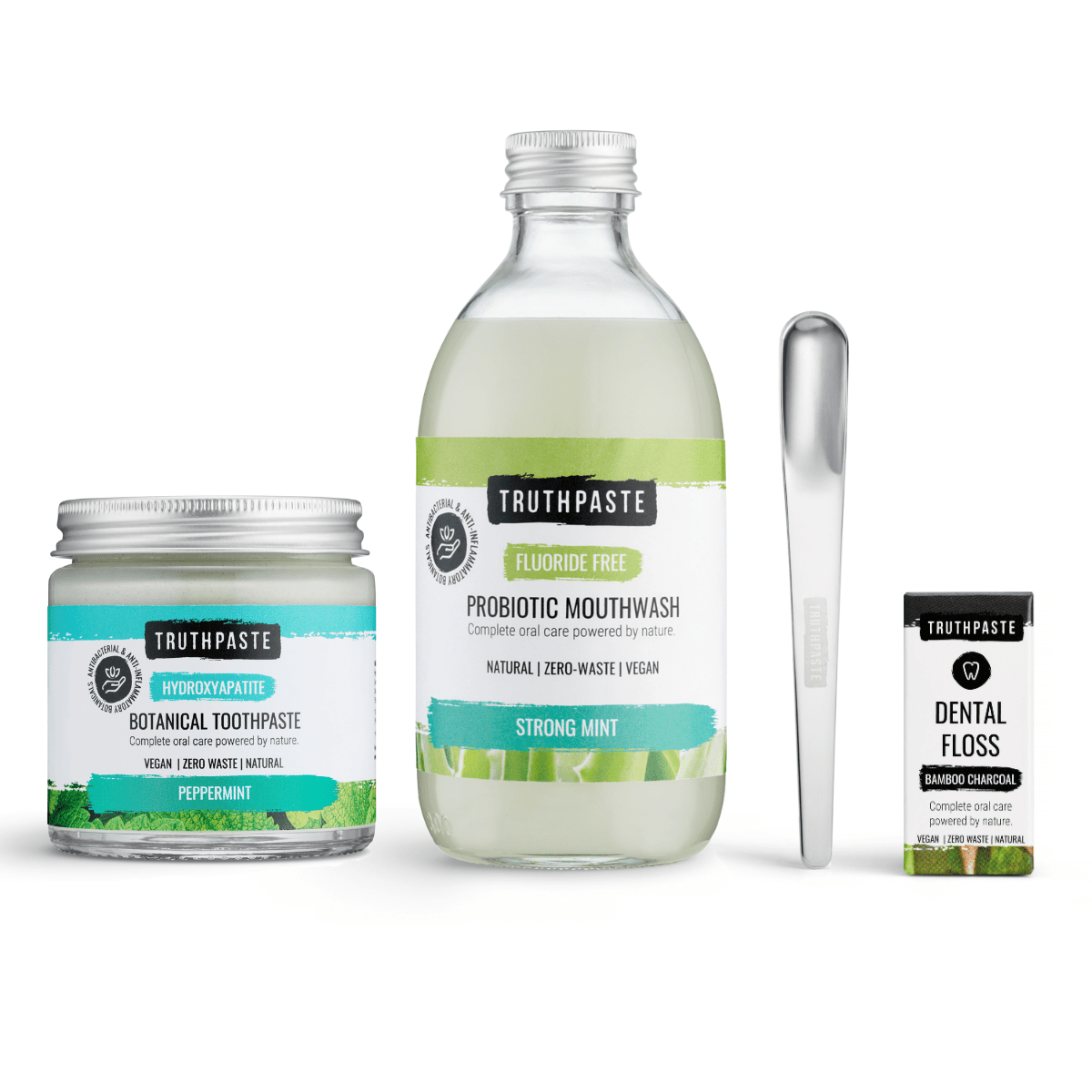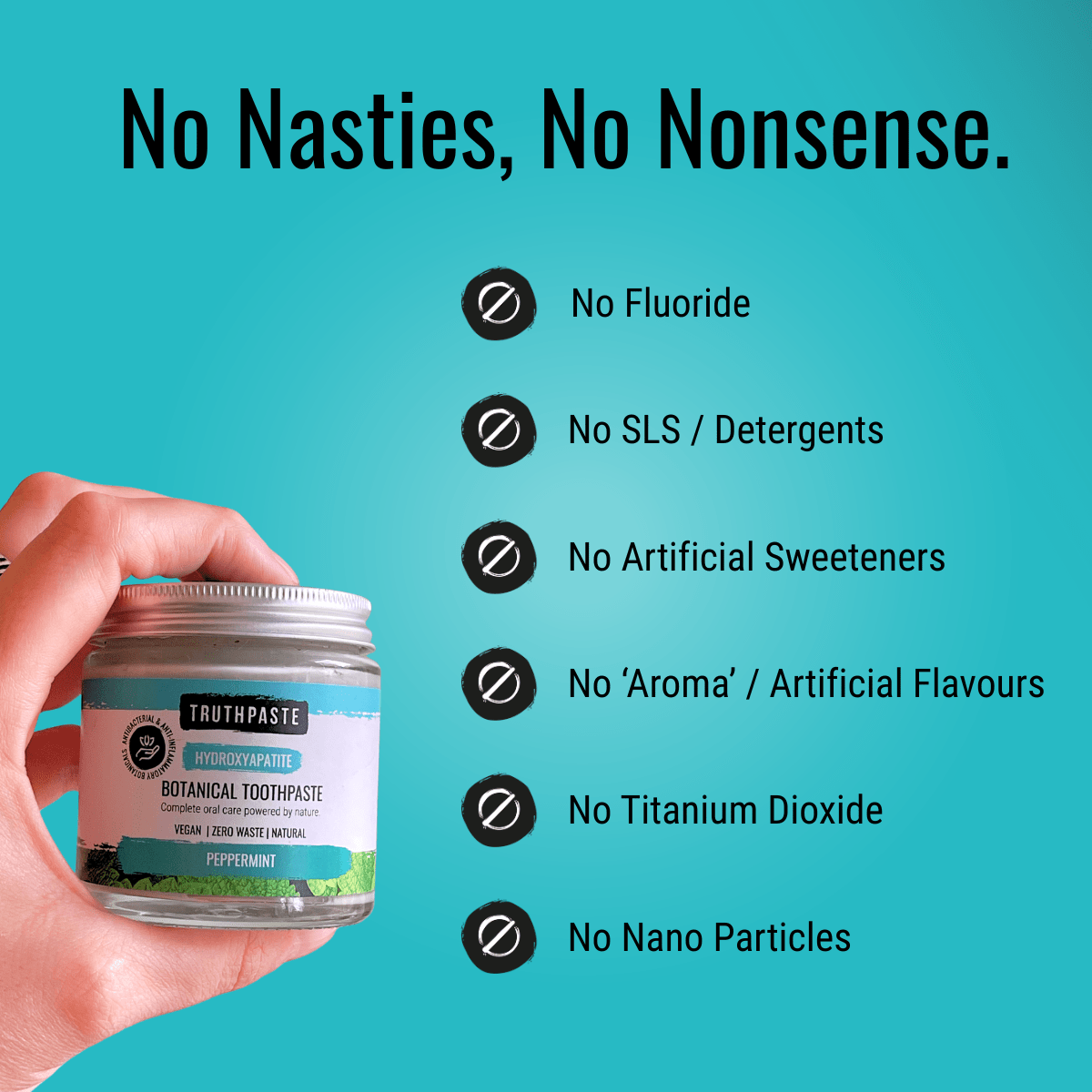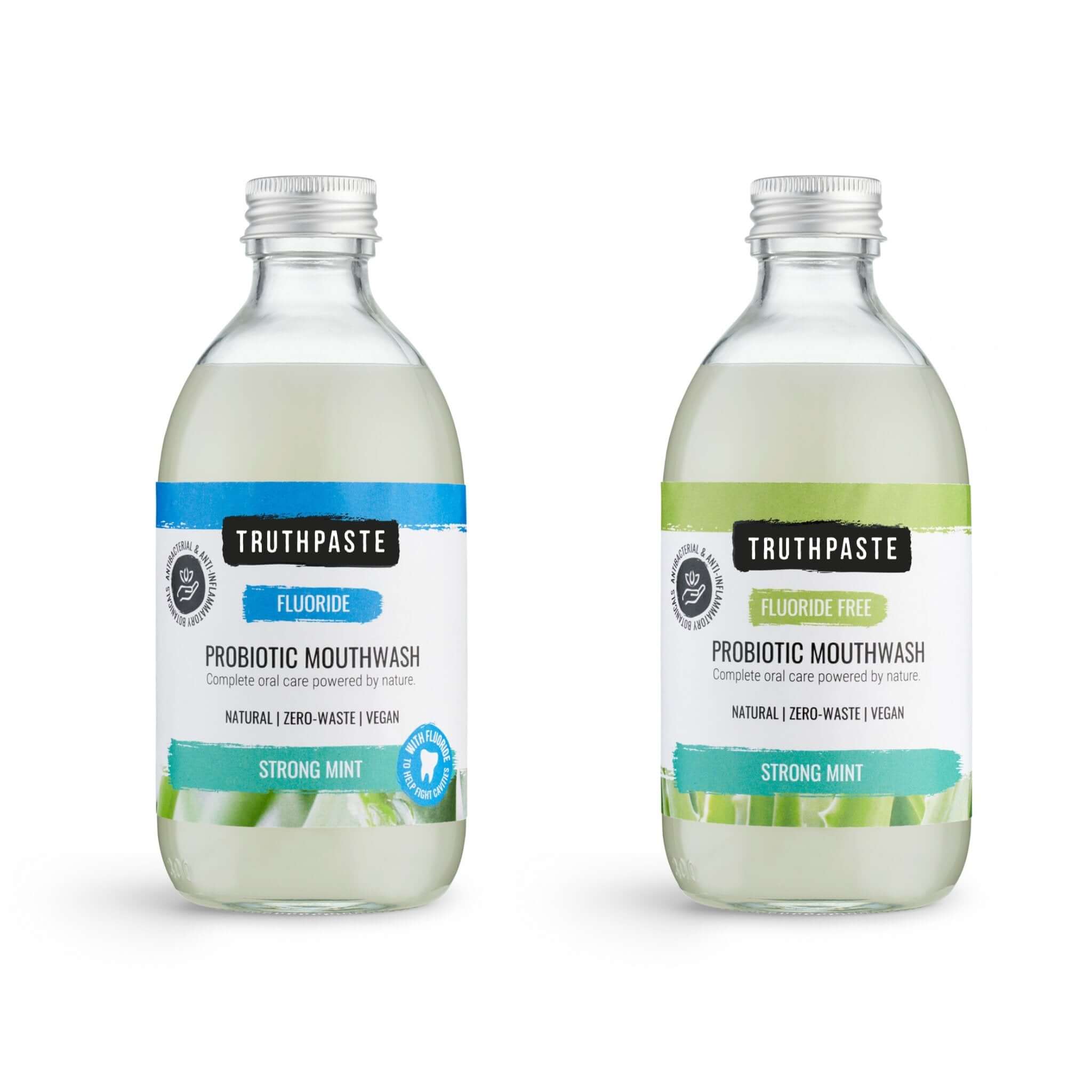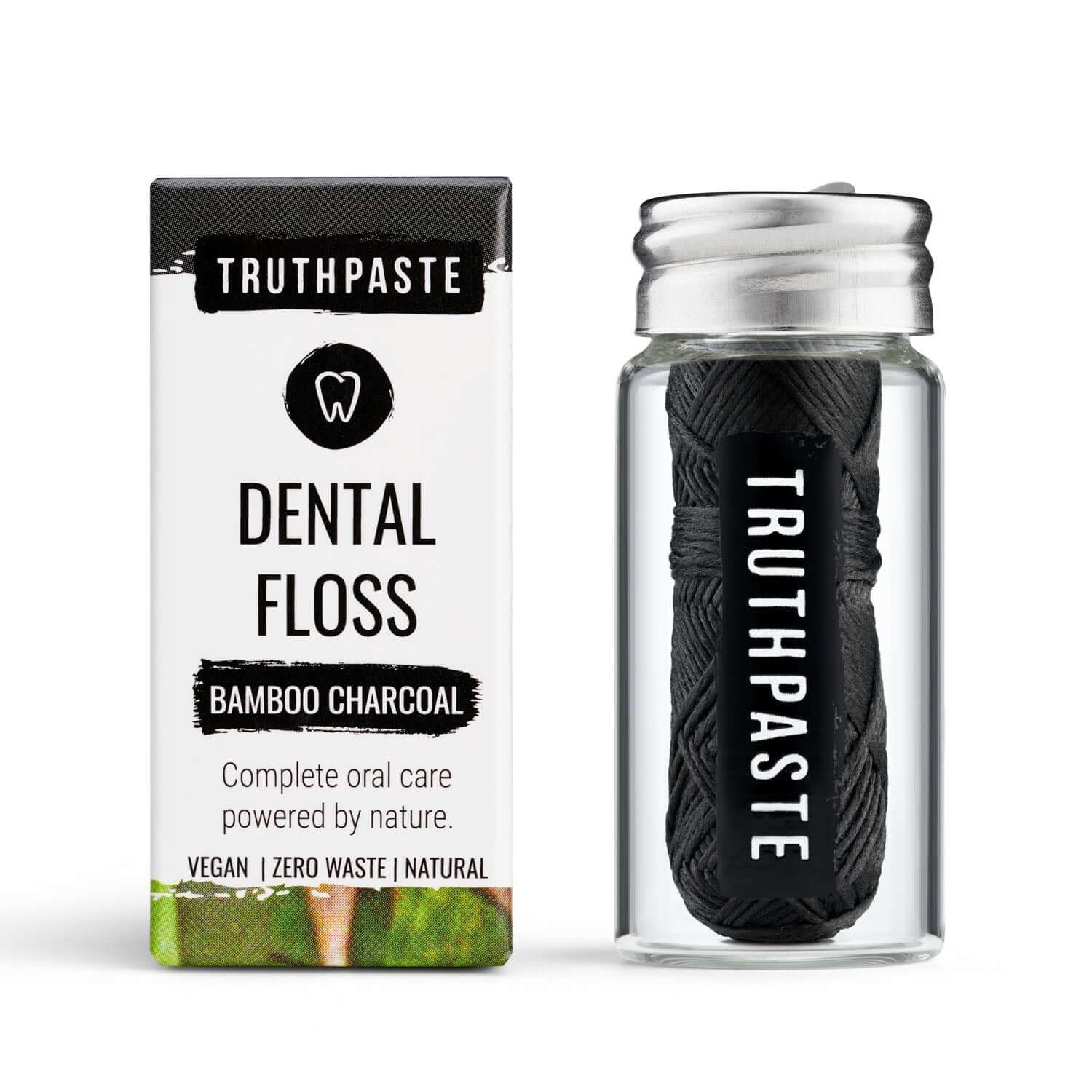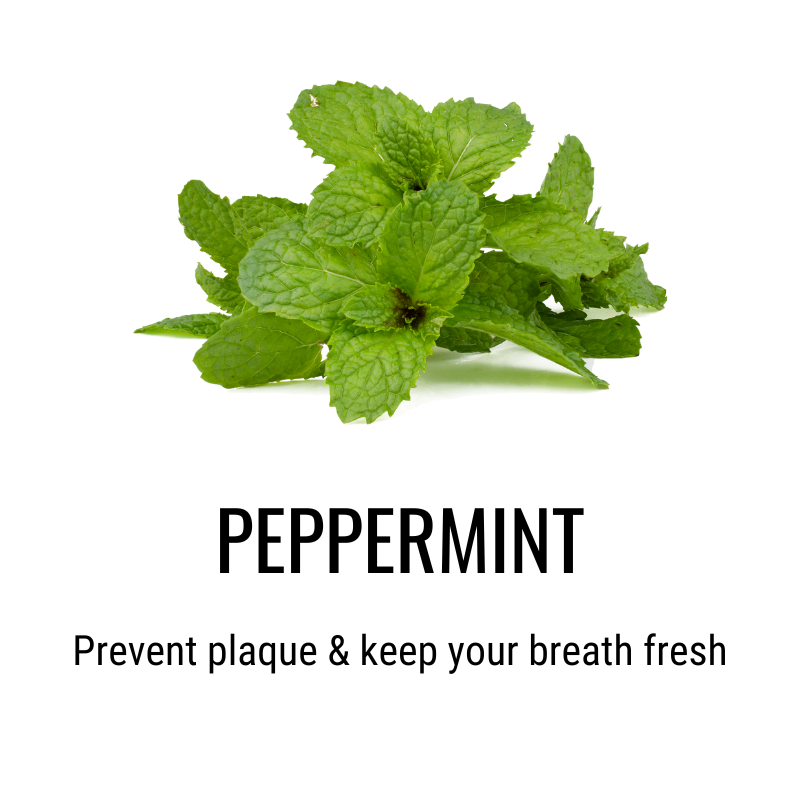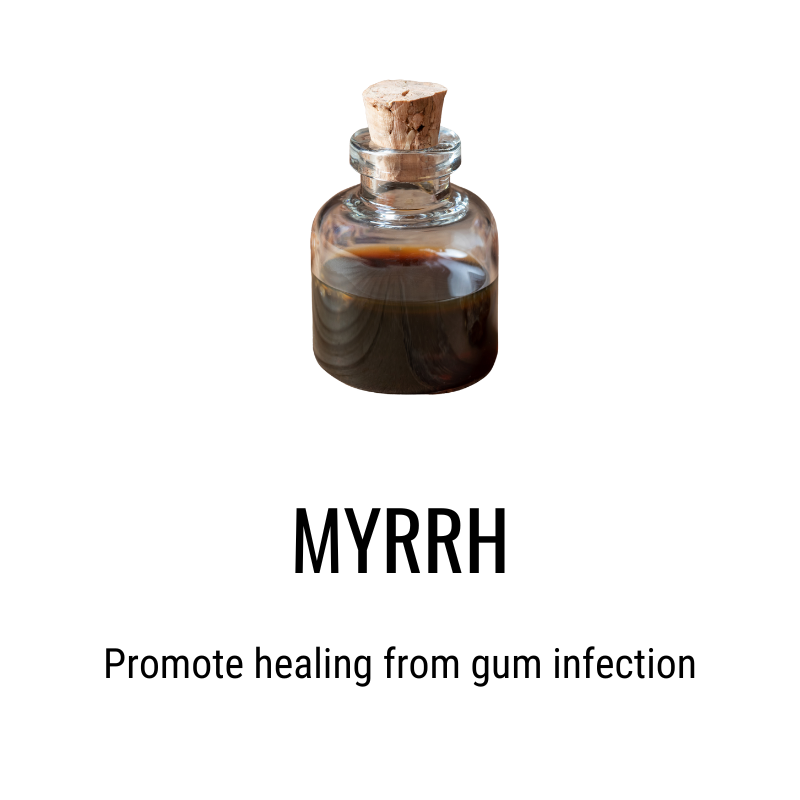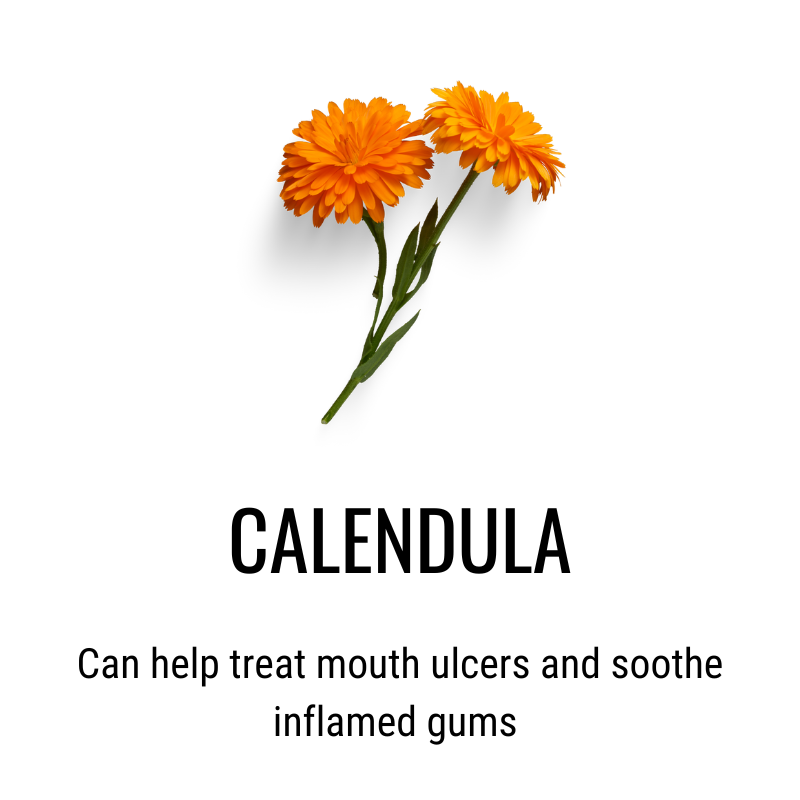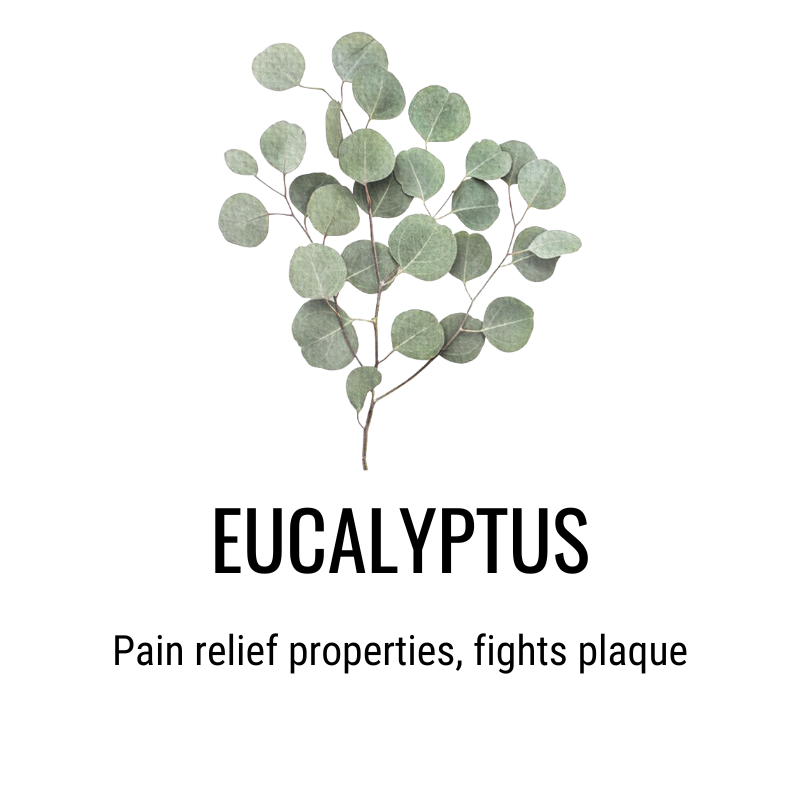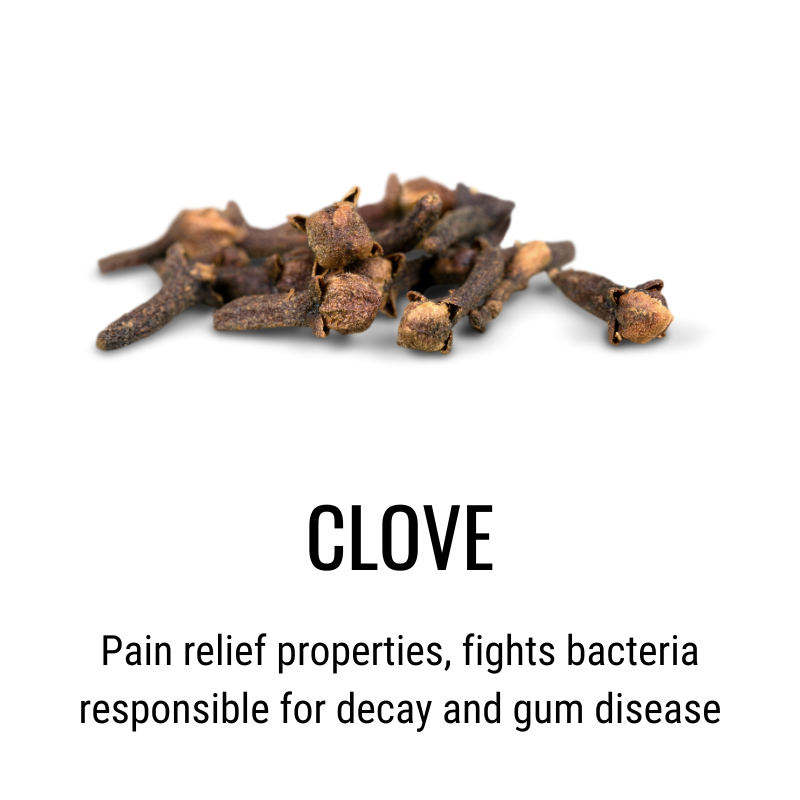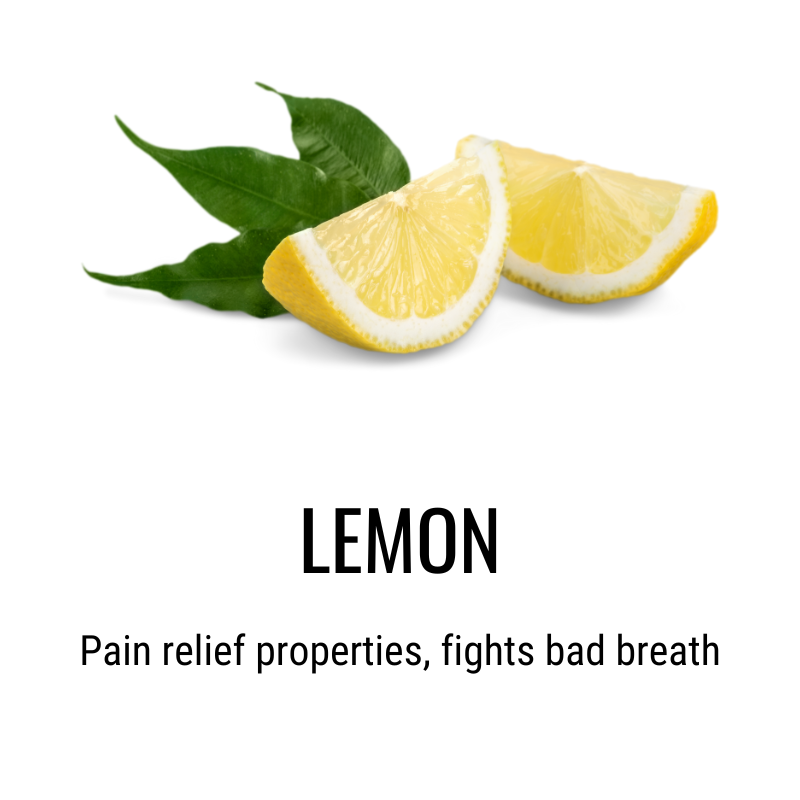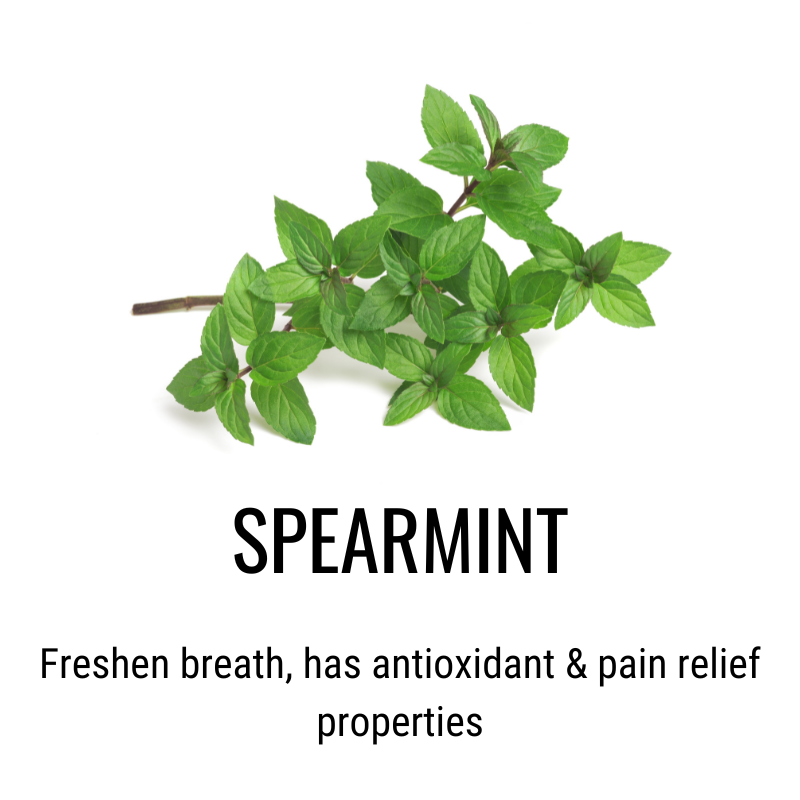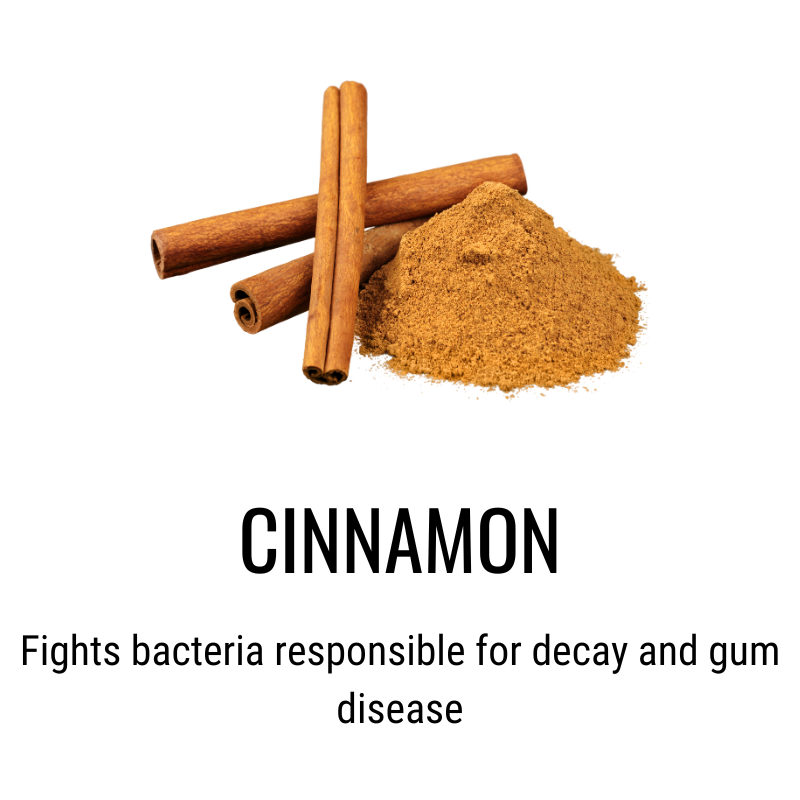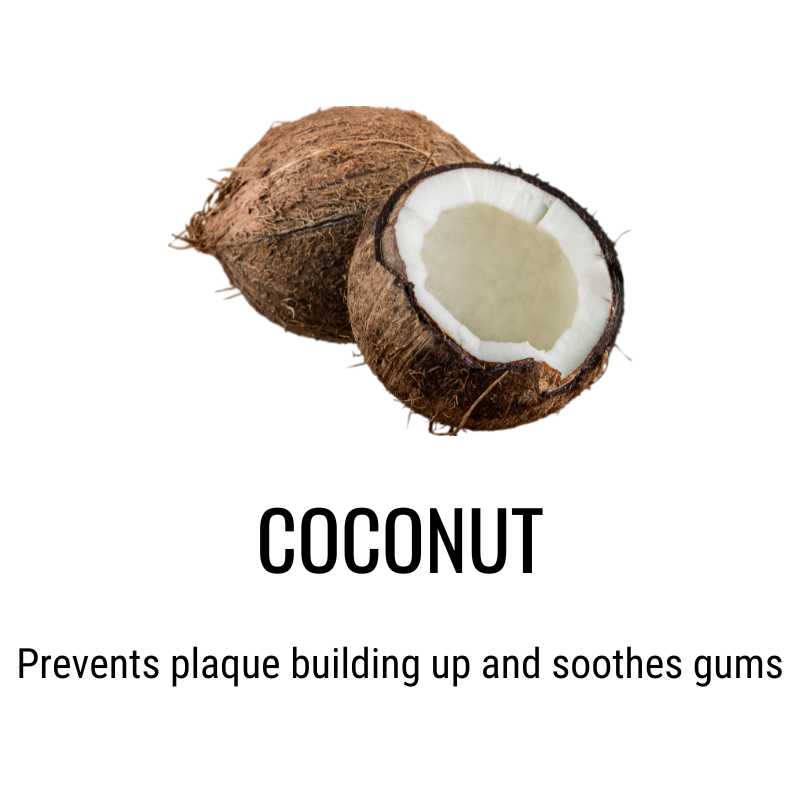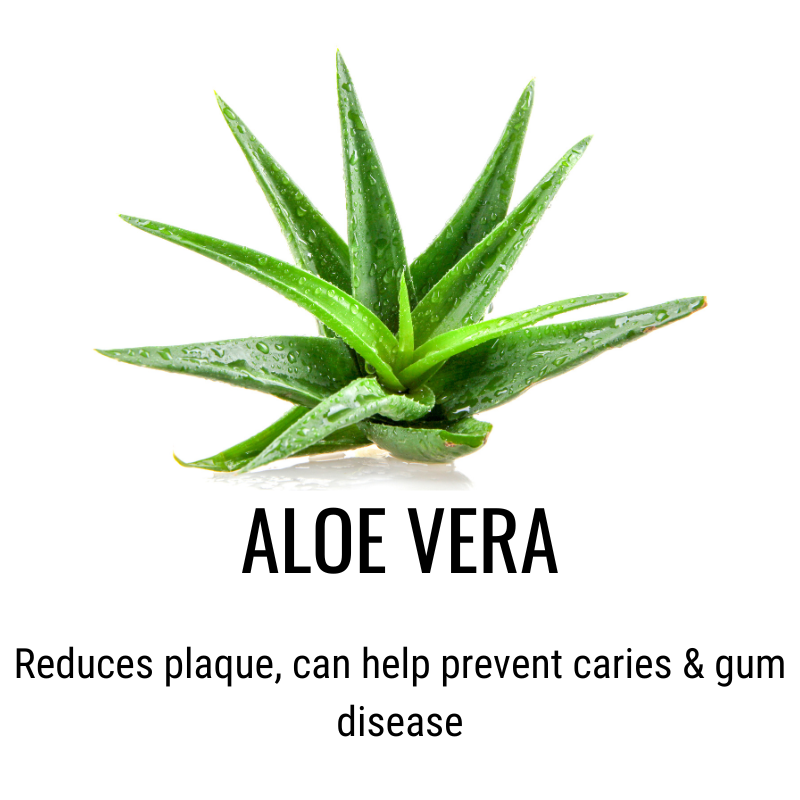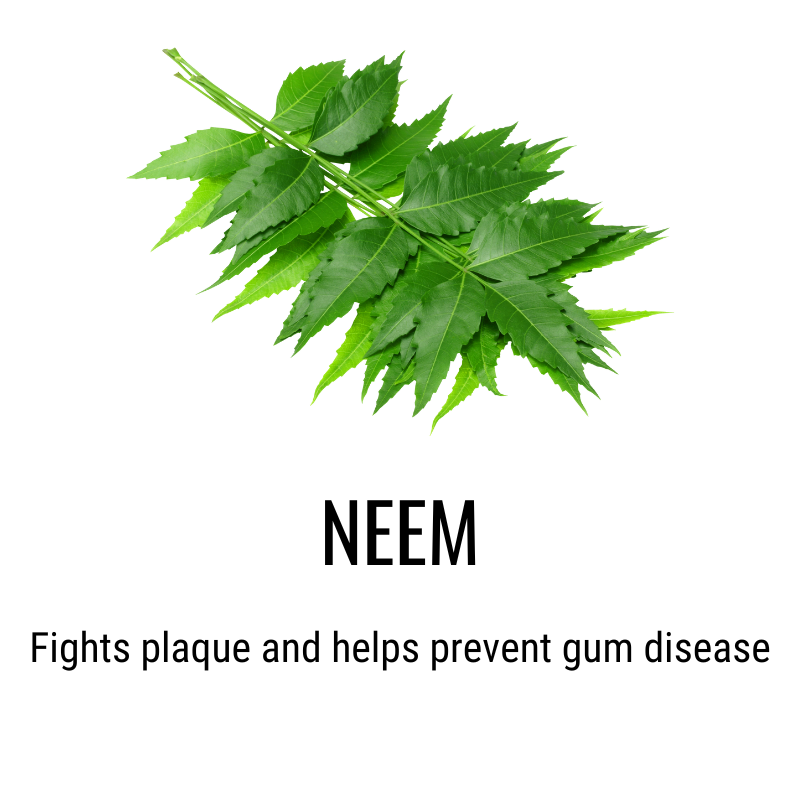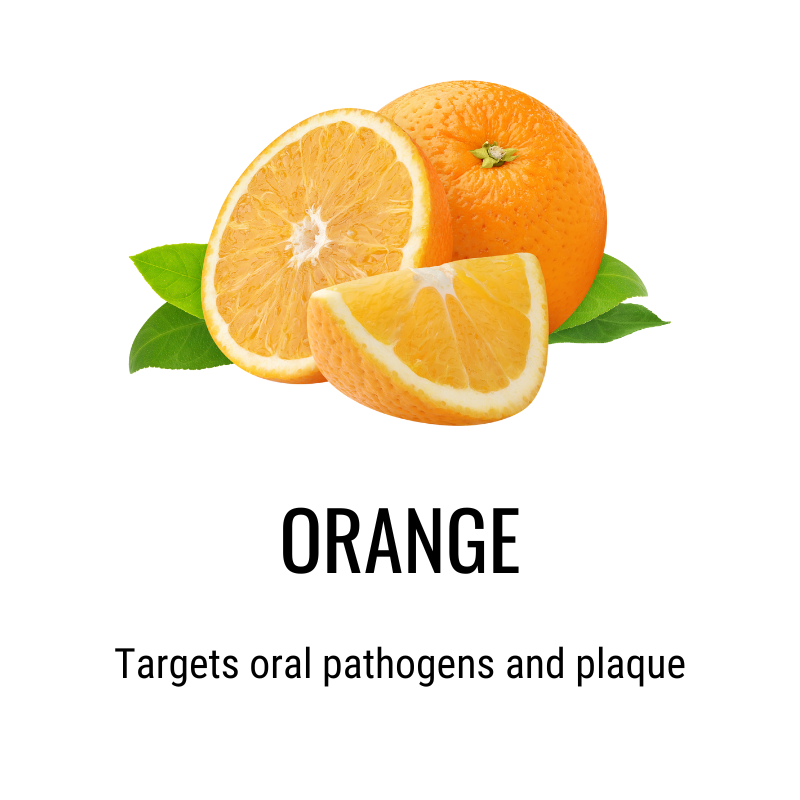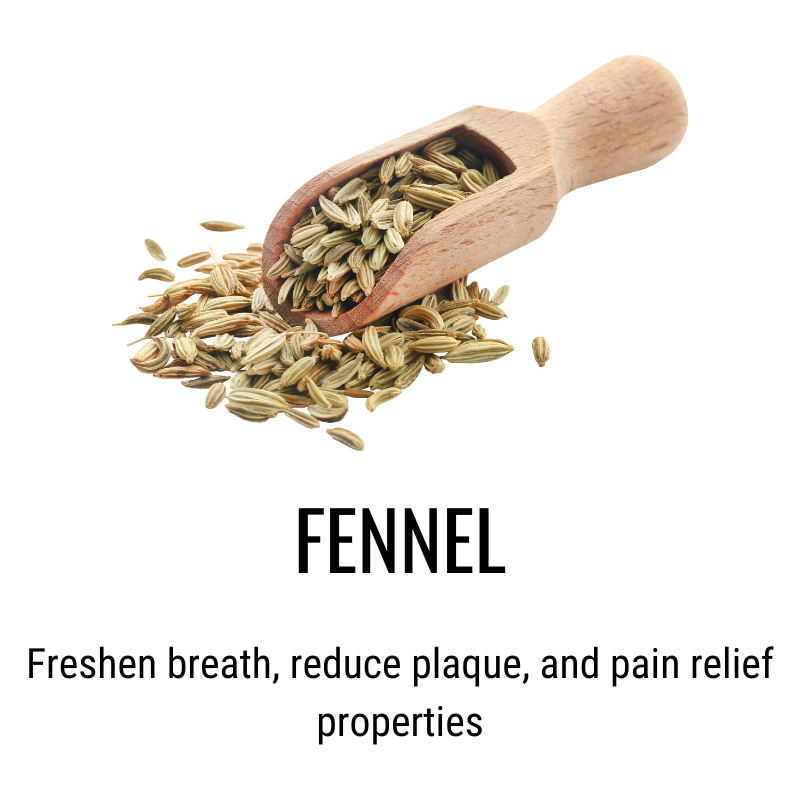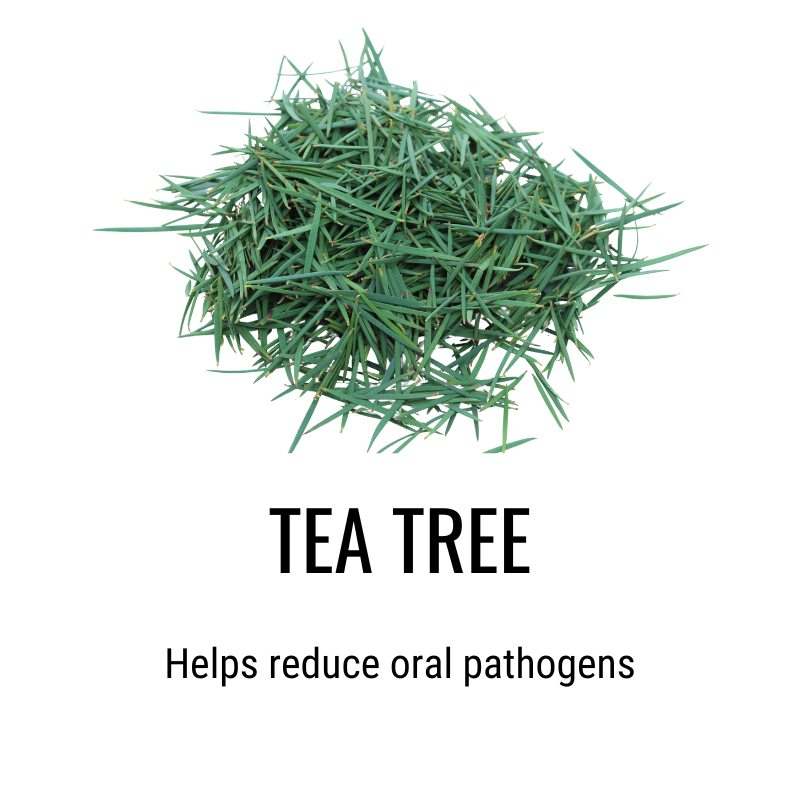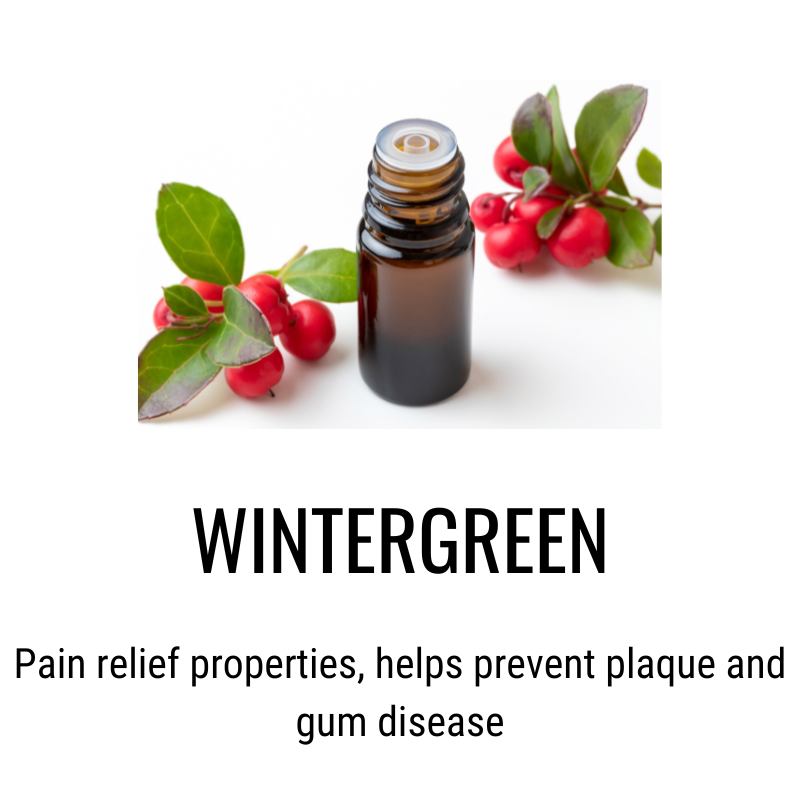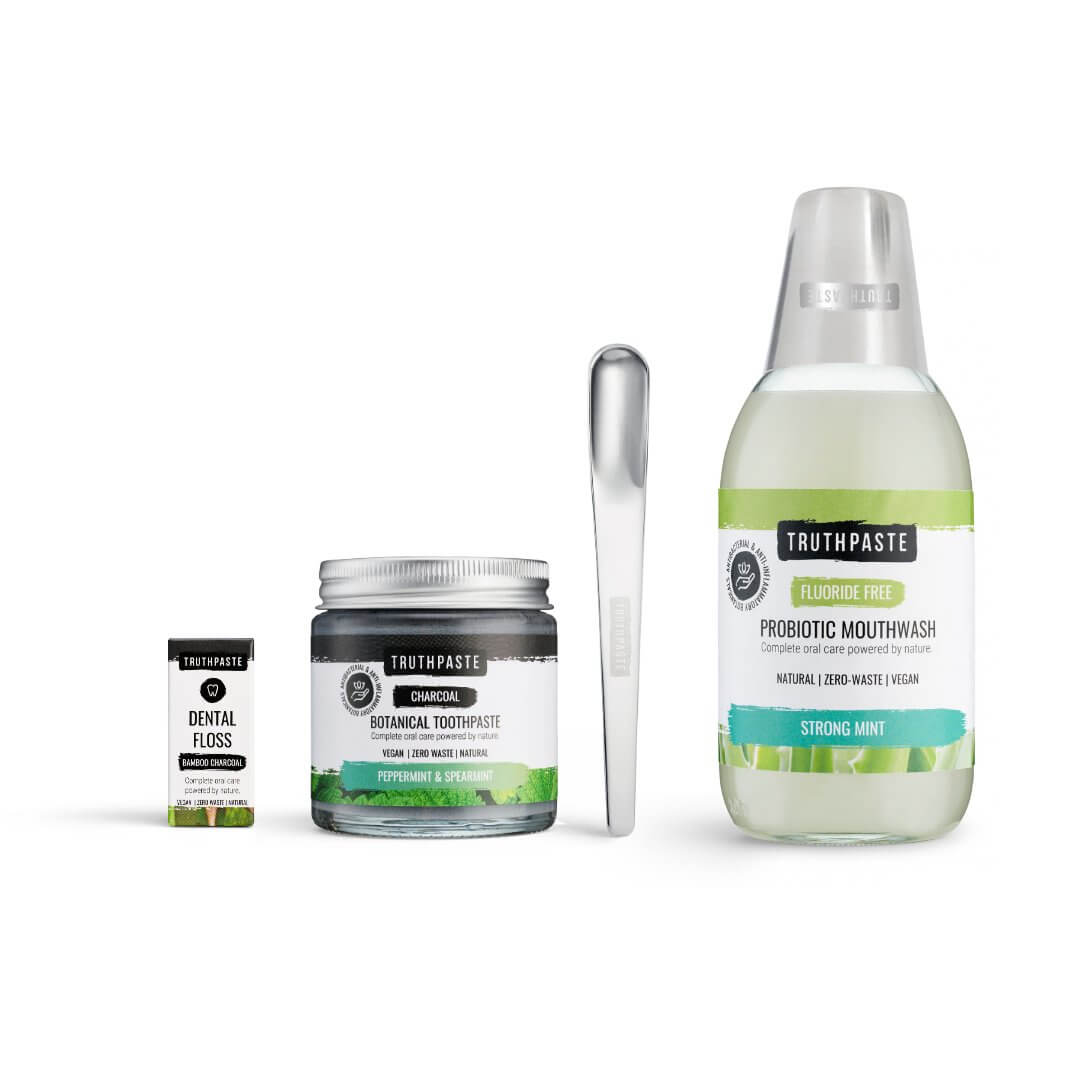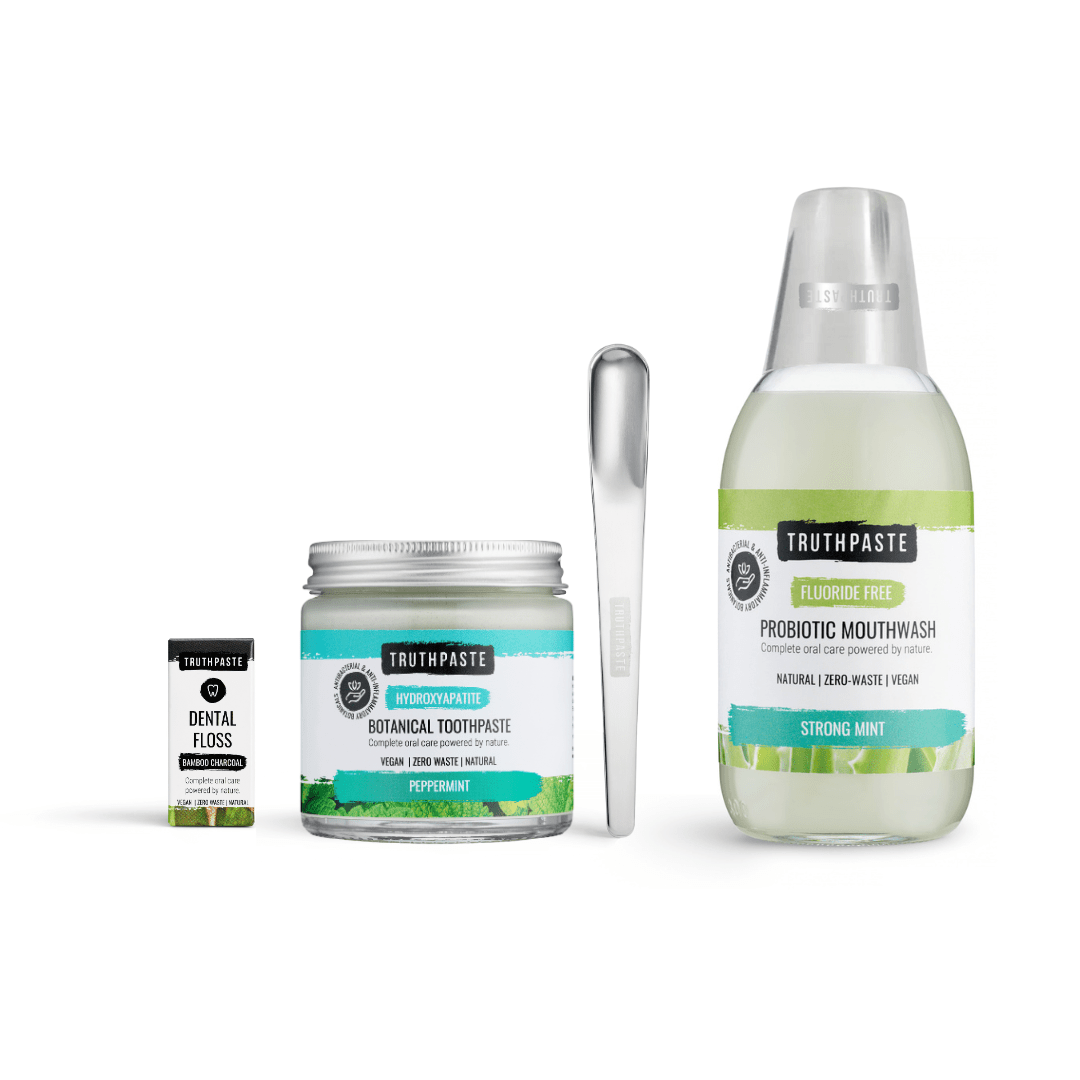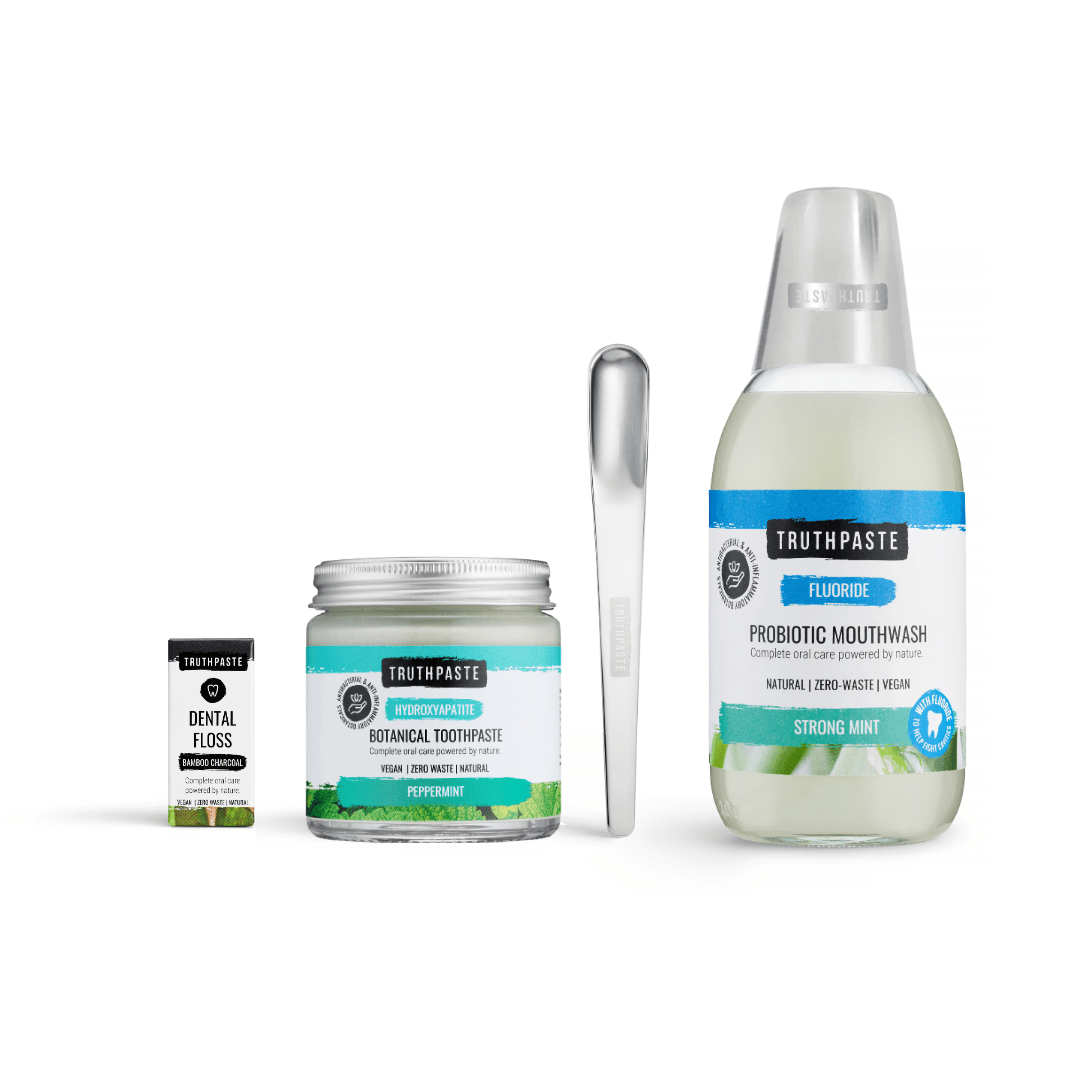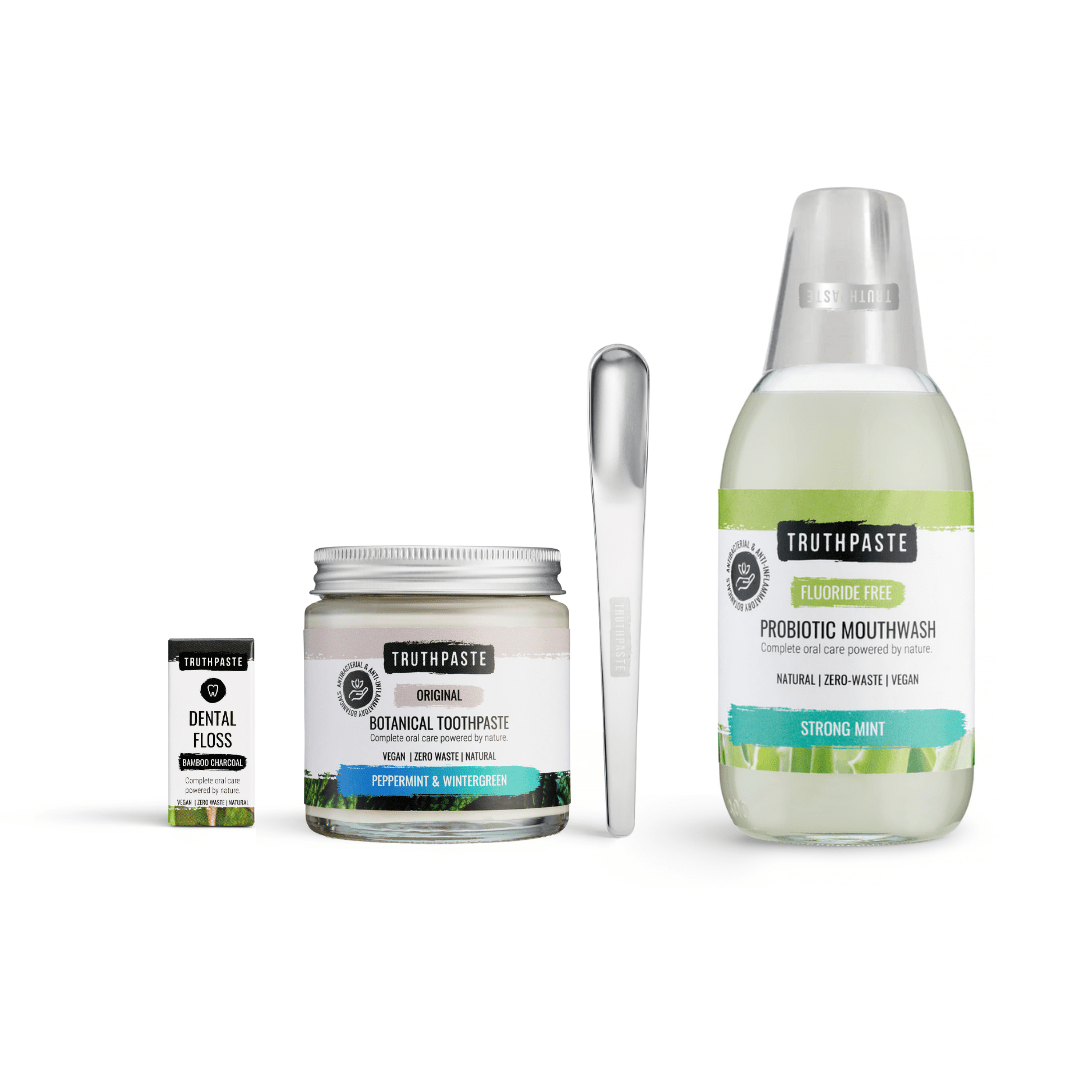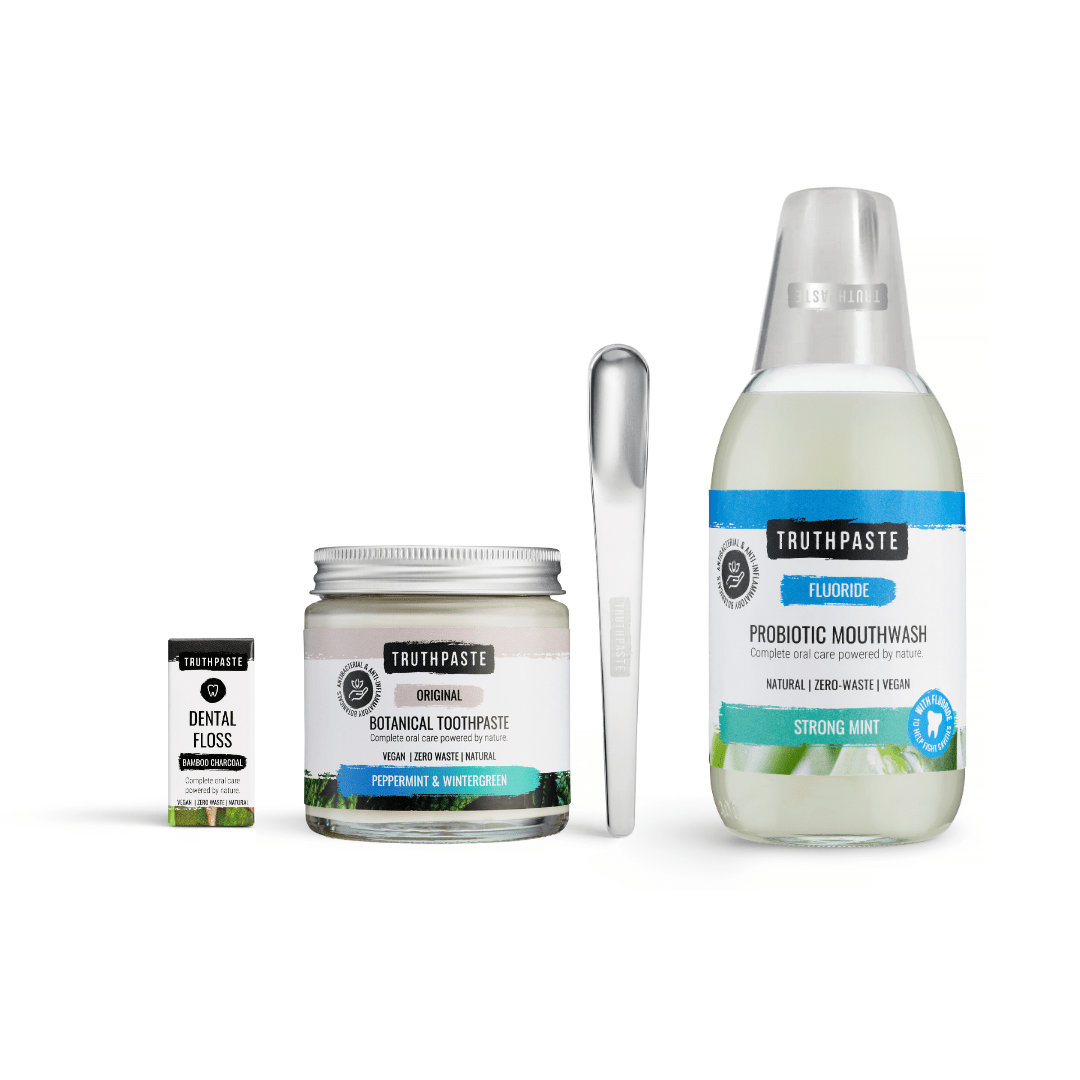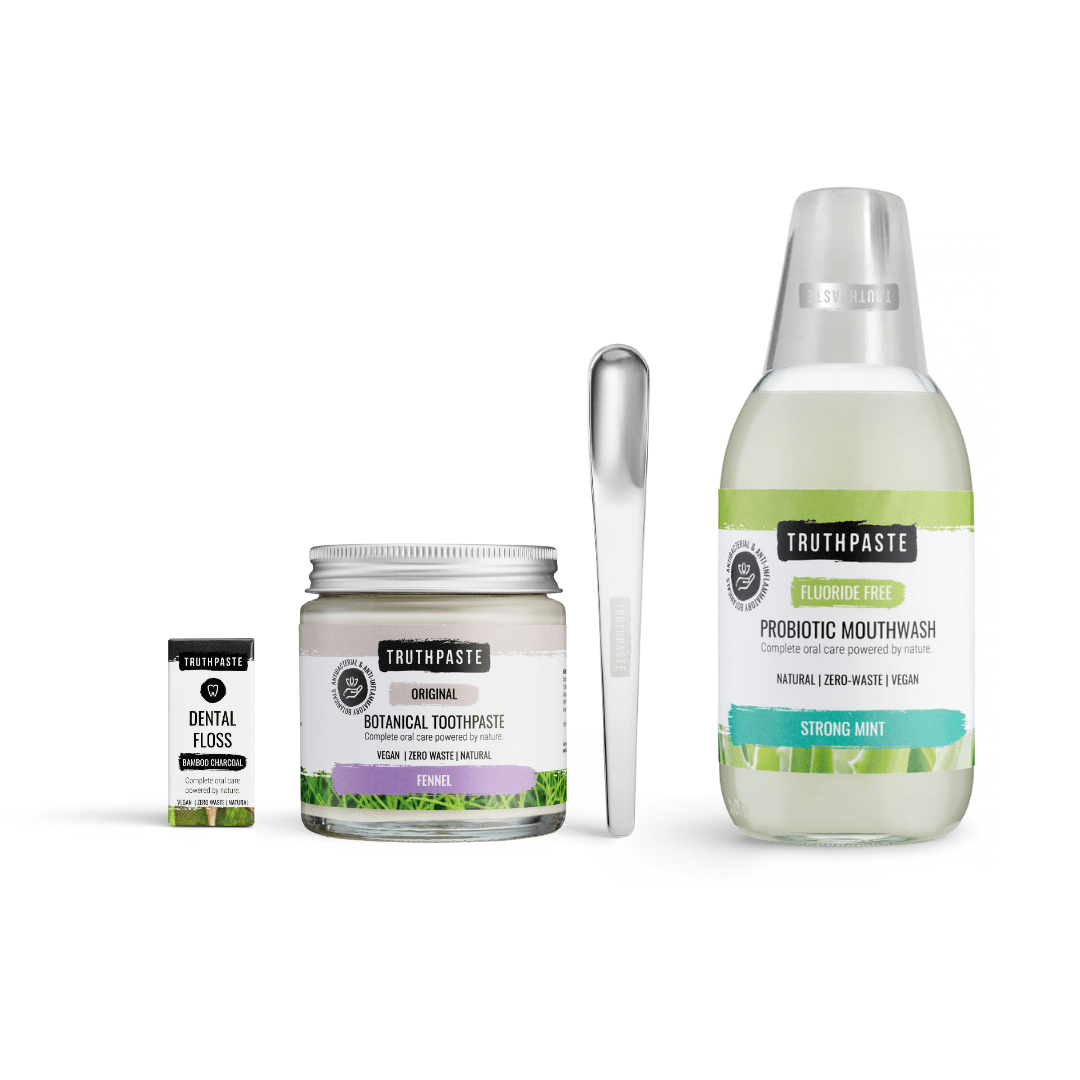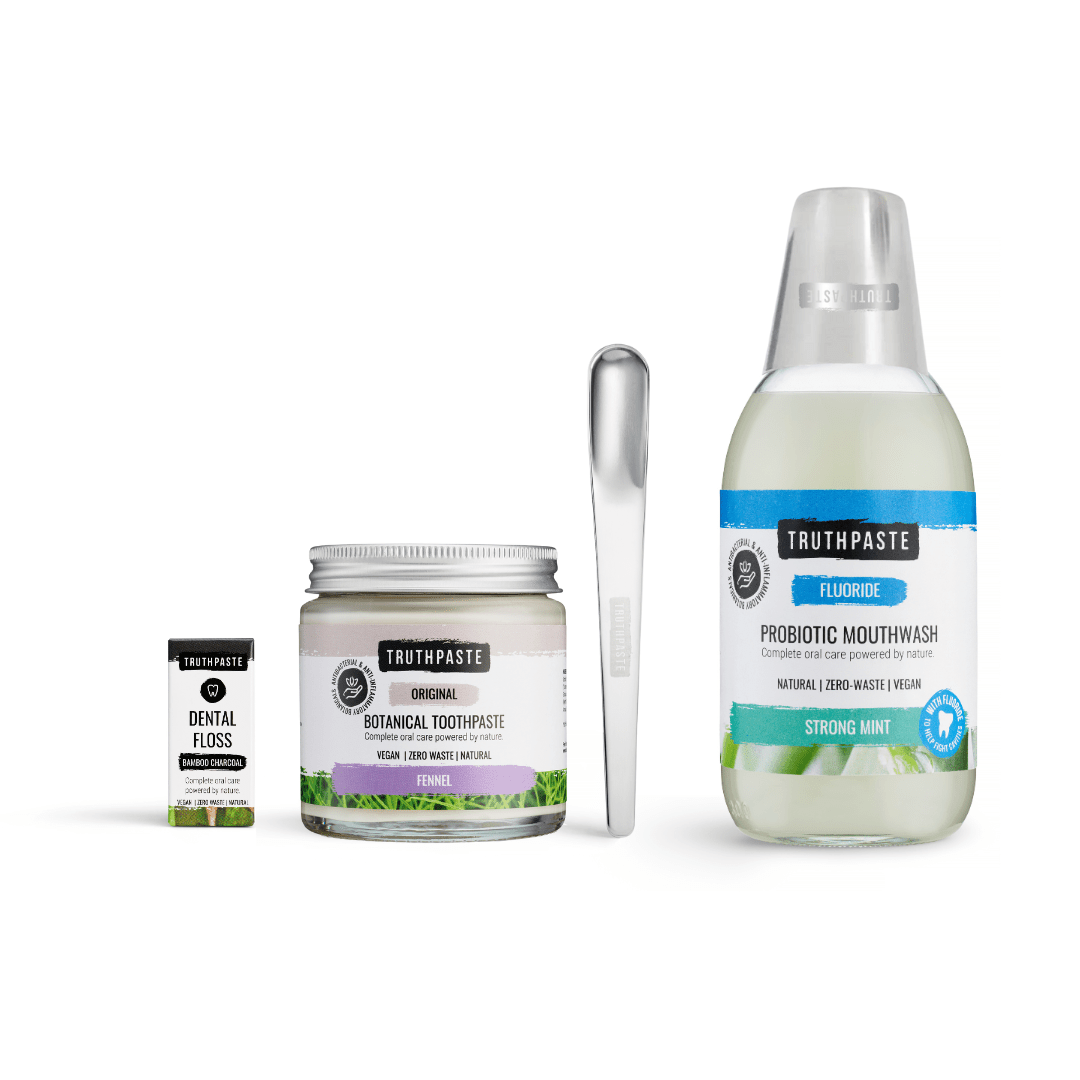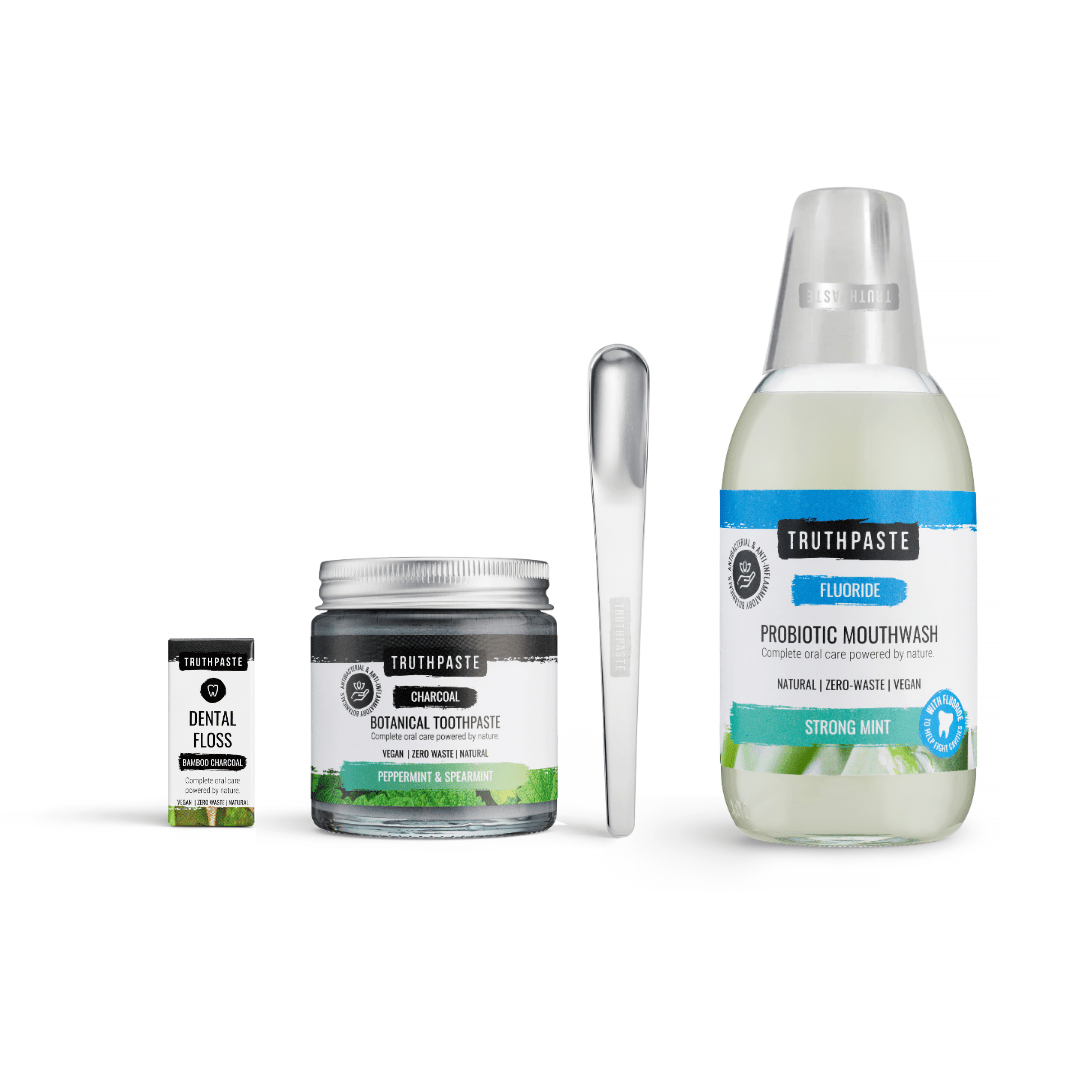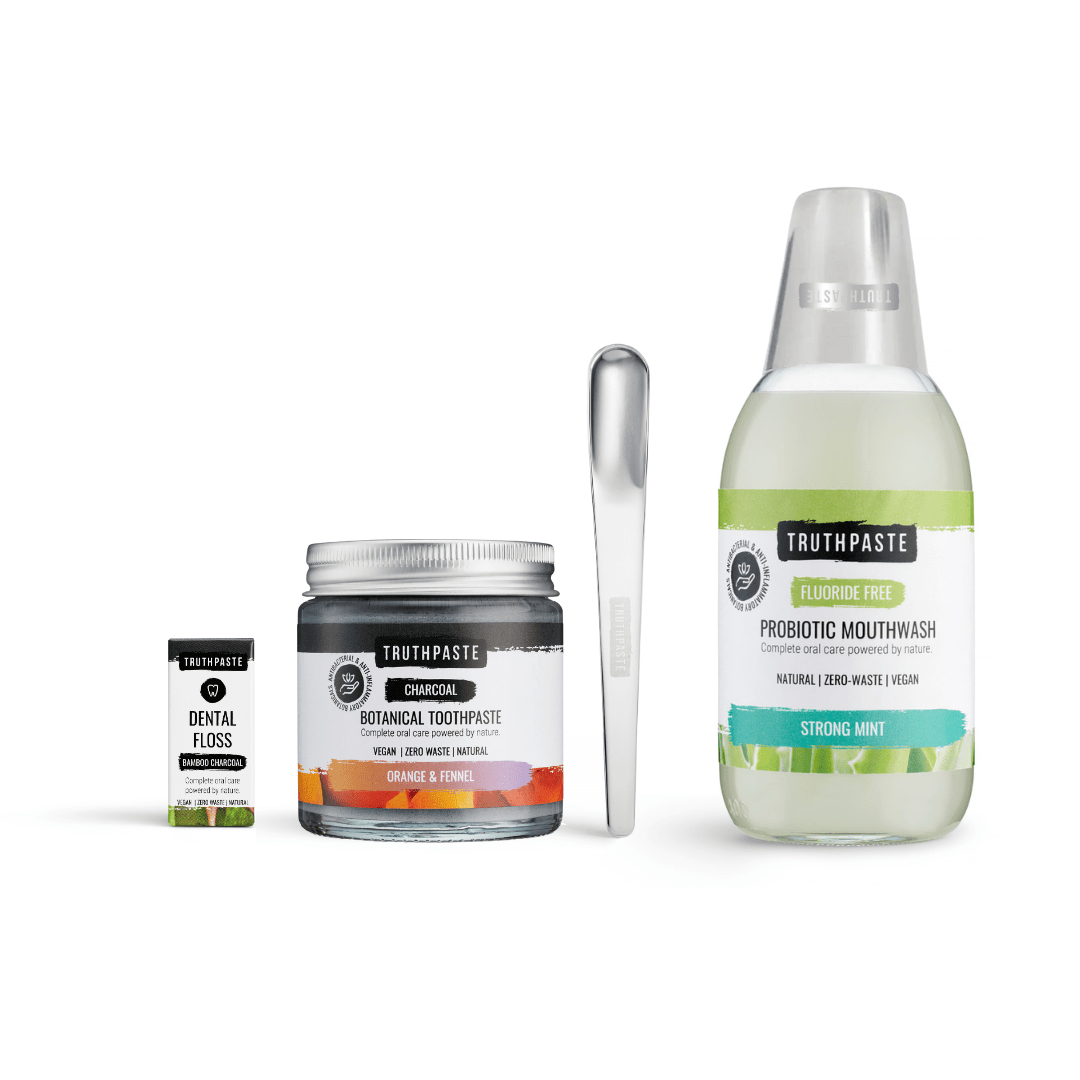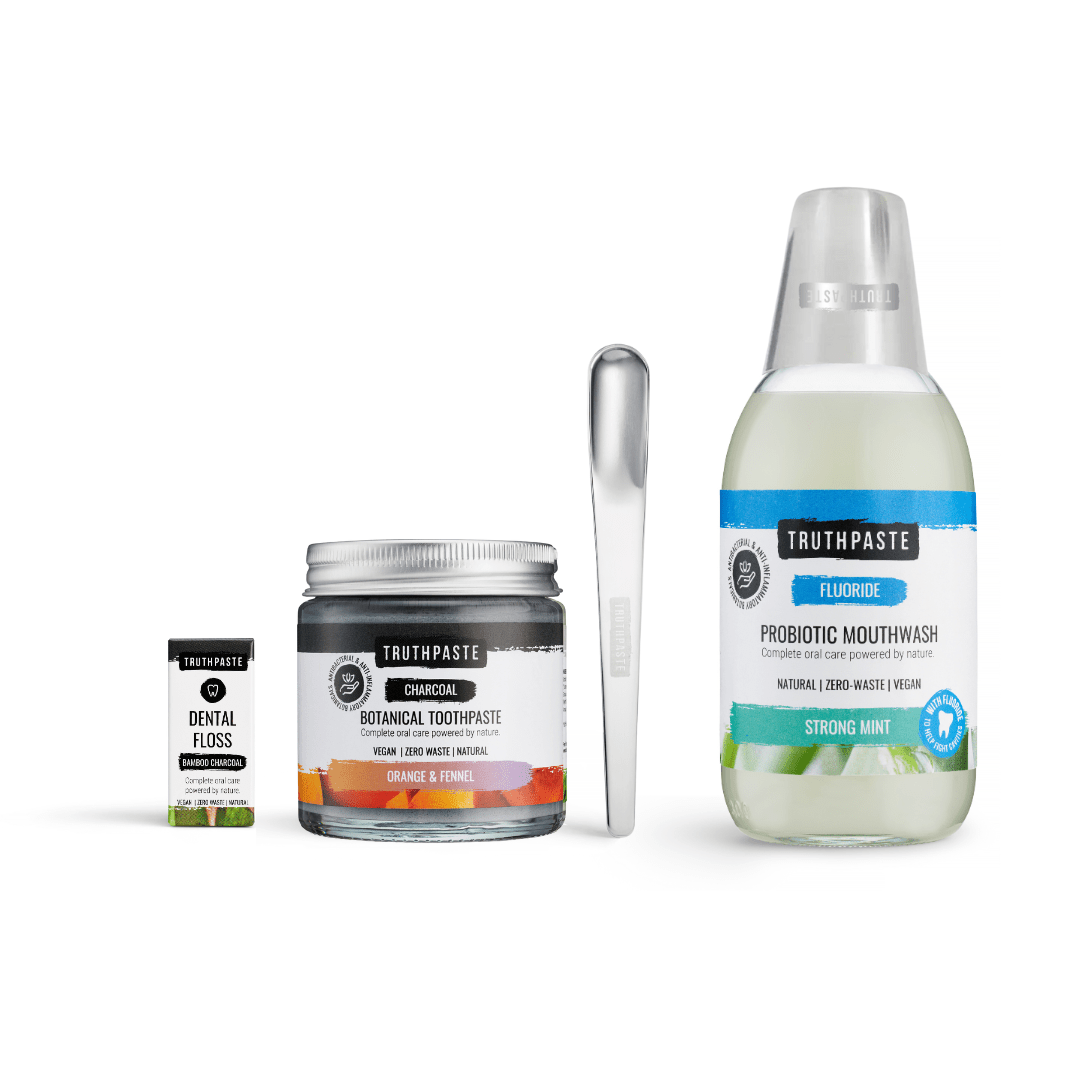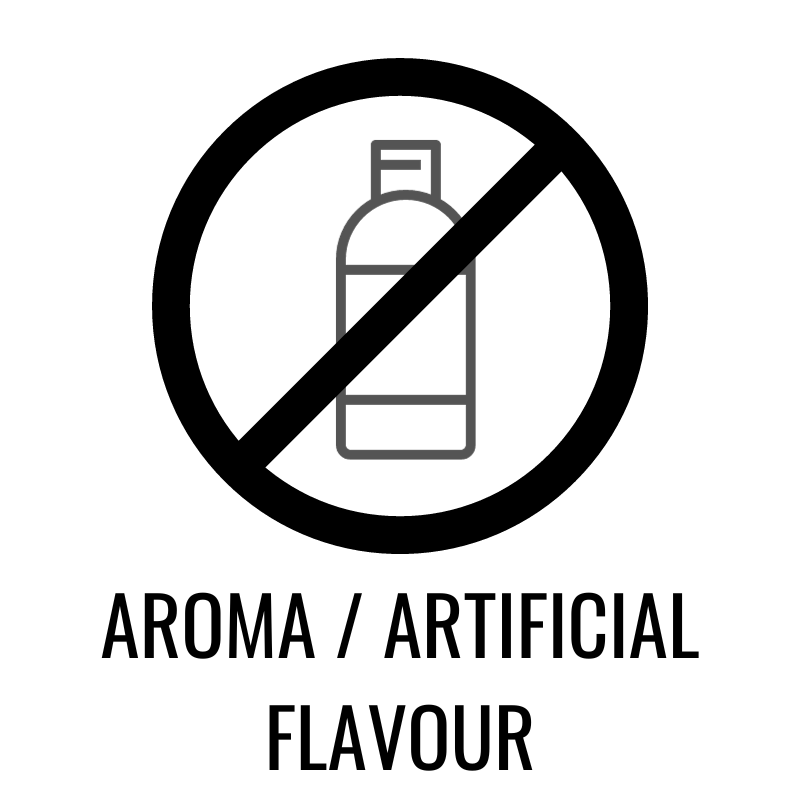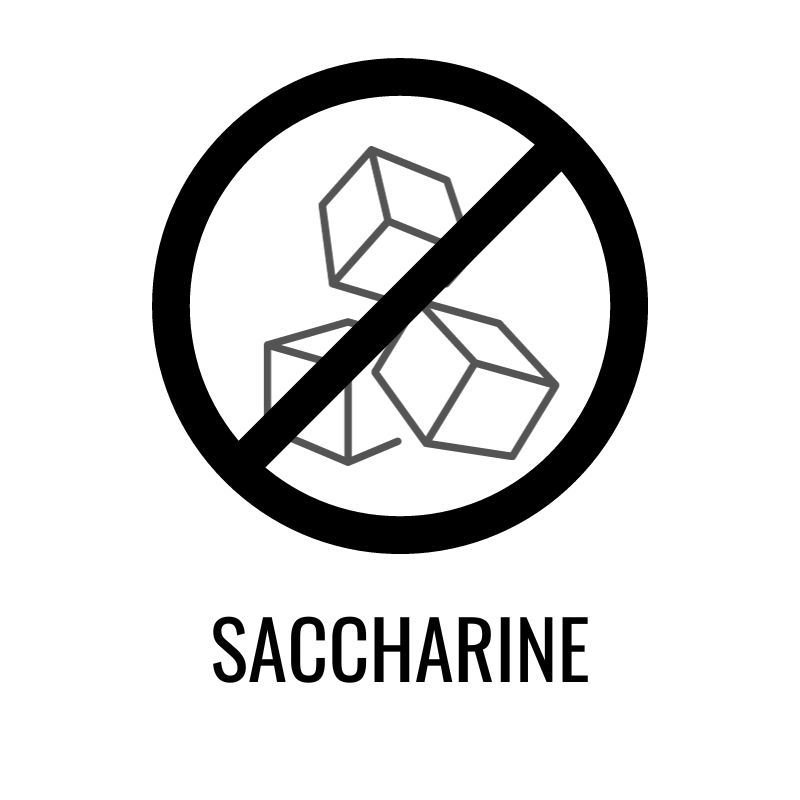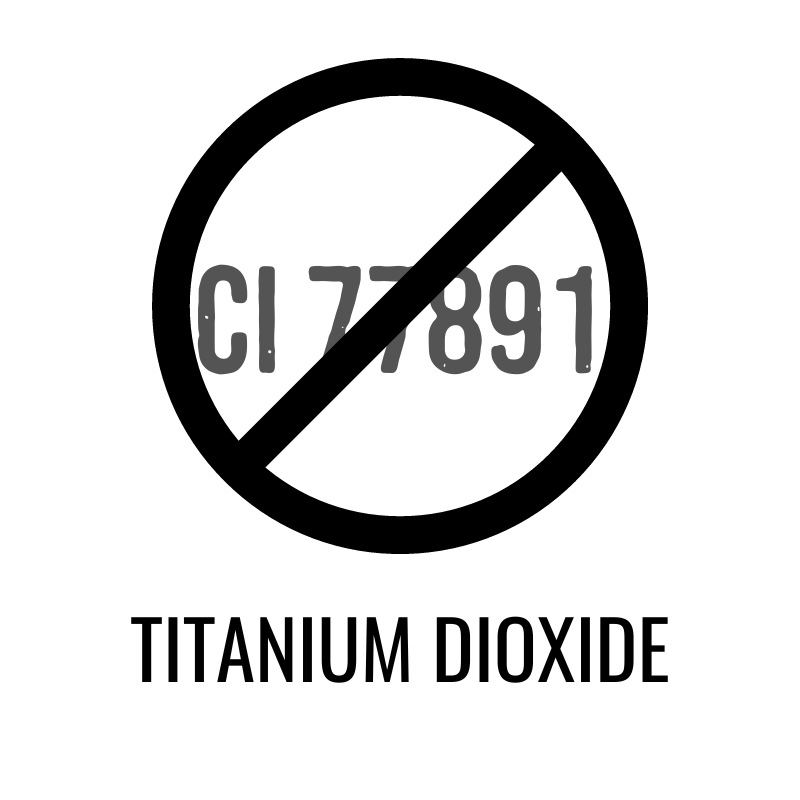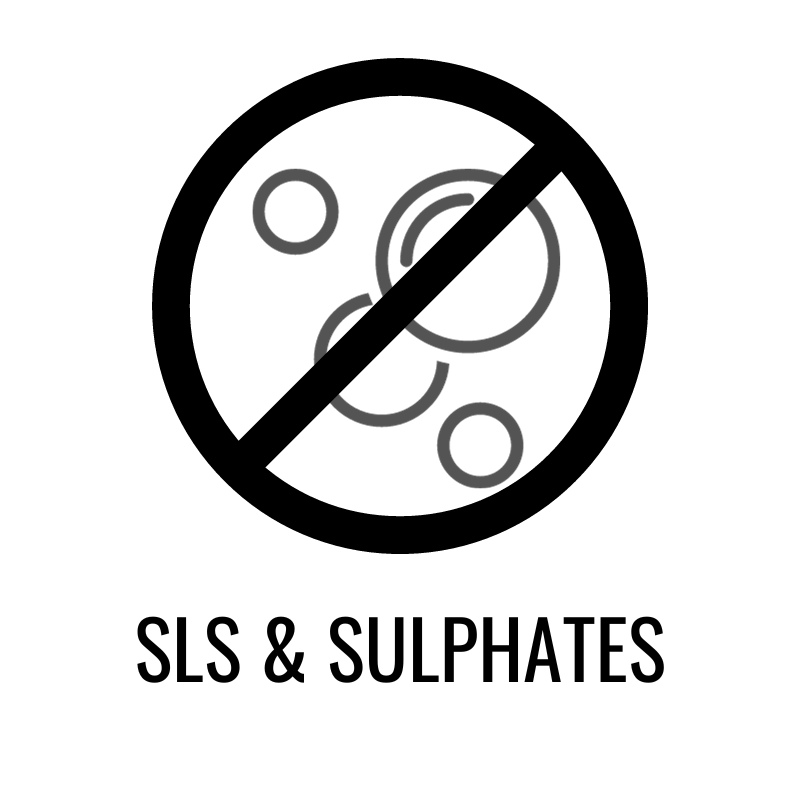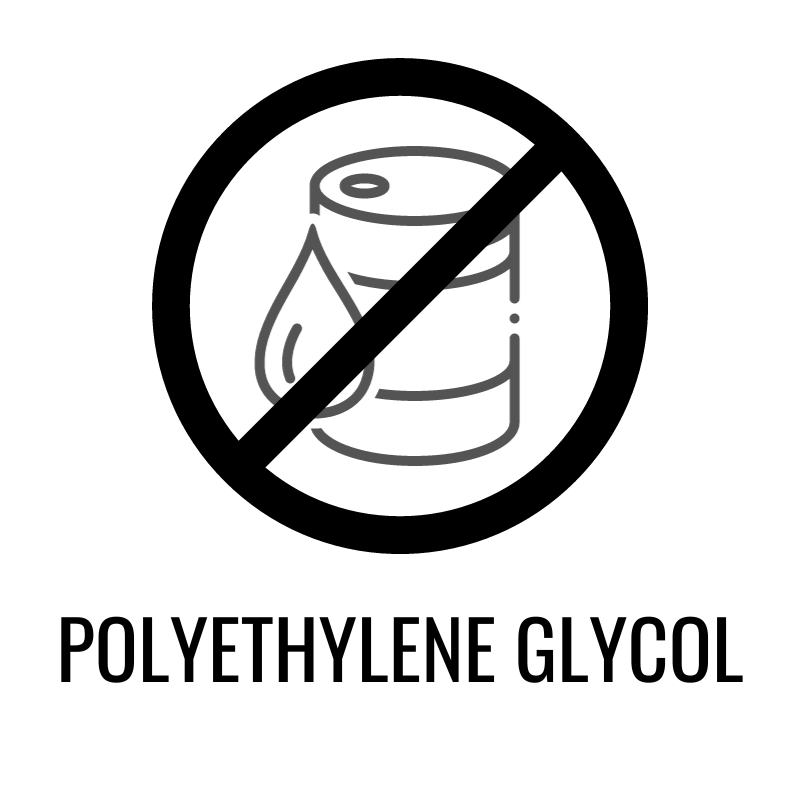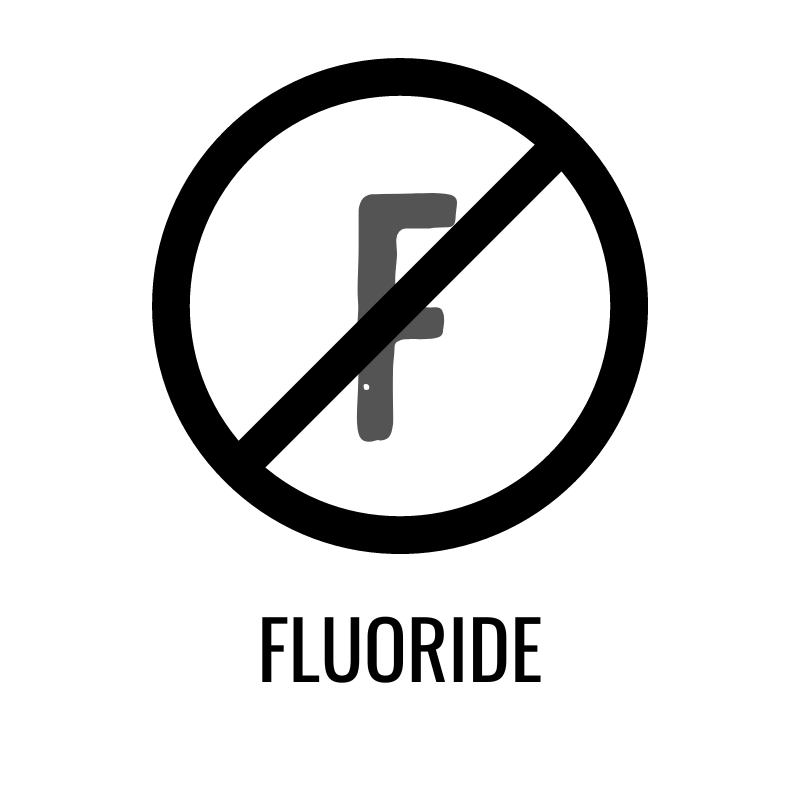You can't regrow enamel, but you can remineralise
Build your self-care ritual
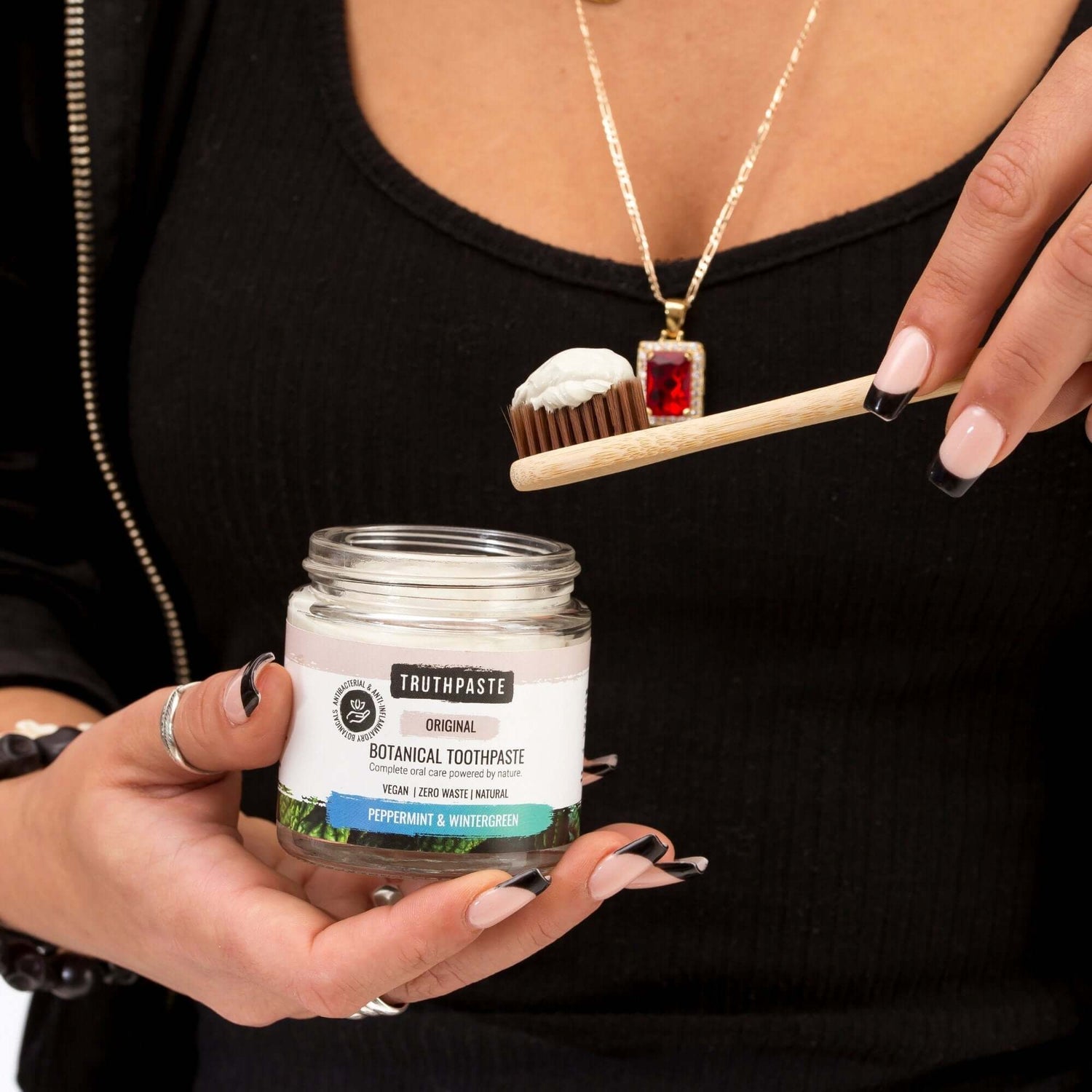
Inspired by a toothache
Up to 90% of adults in the UK have some form of gum disease.
This can range from mild inflammation to advanced periodontal disease.
Left undressed, it can affect your entire body. Gum disease is linked to Alzheimer's disease, cardiovascular diseases, diabetes complications and premature labour.
Care for your whole mouth, not just your teeth with our organic botanical oral care.
A healthier mouth after one brush
Brush with organic botanicals for their antibacterial and anti-inflammatory properties.
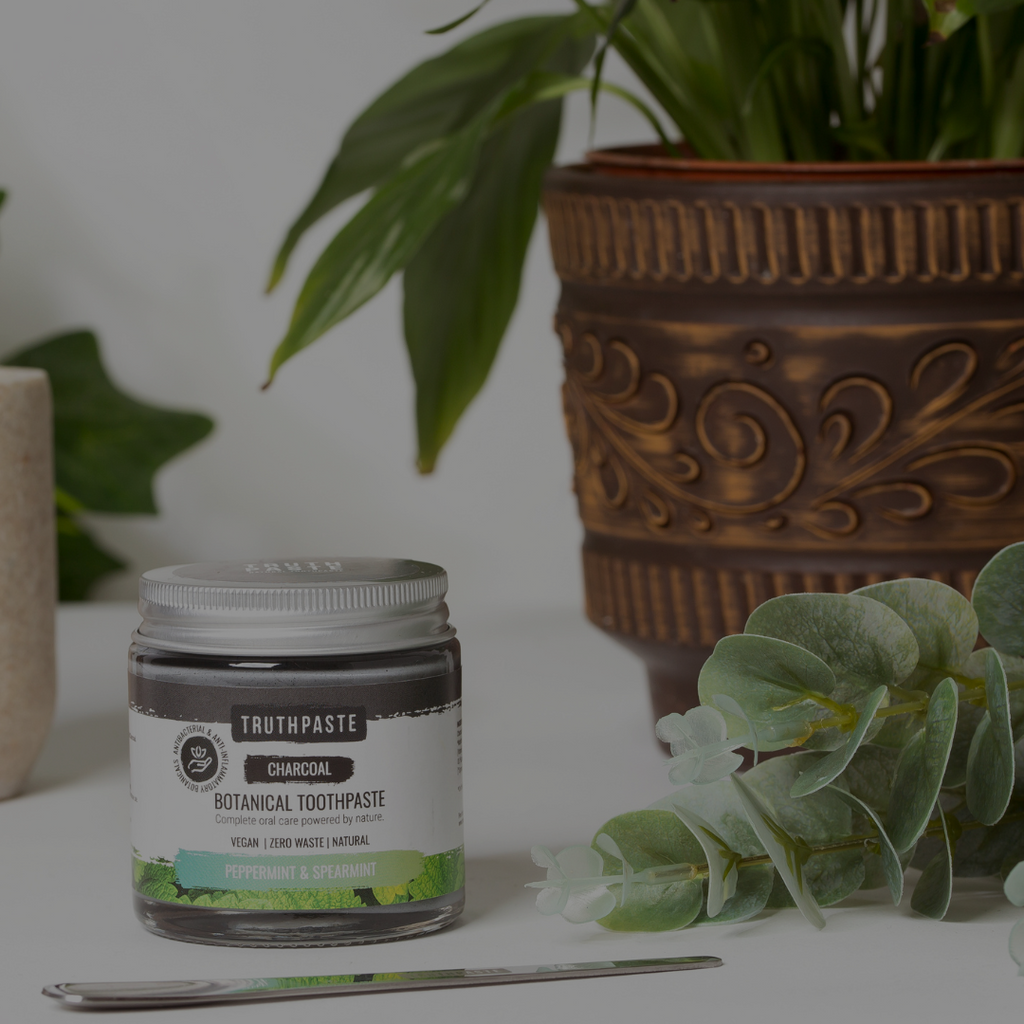
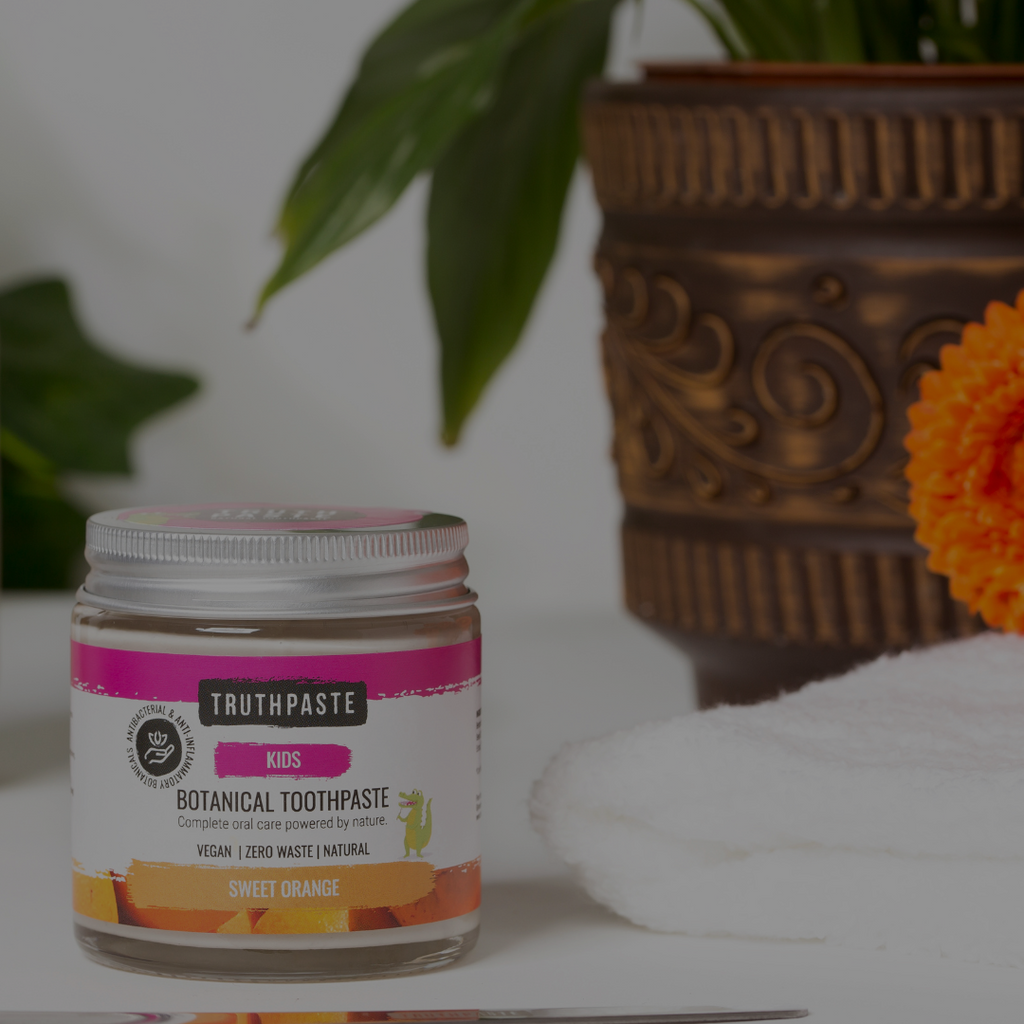
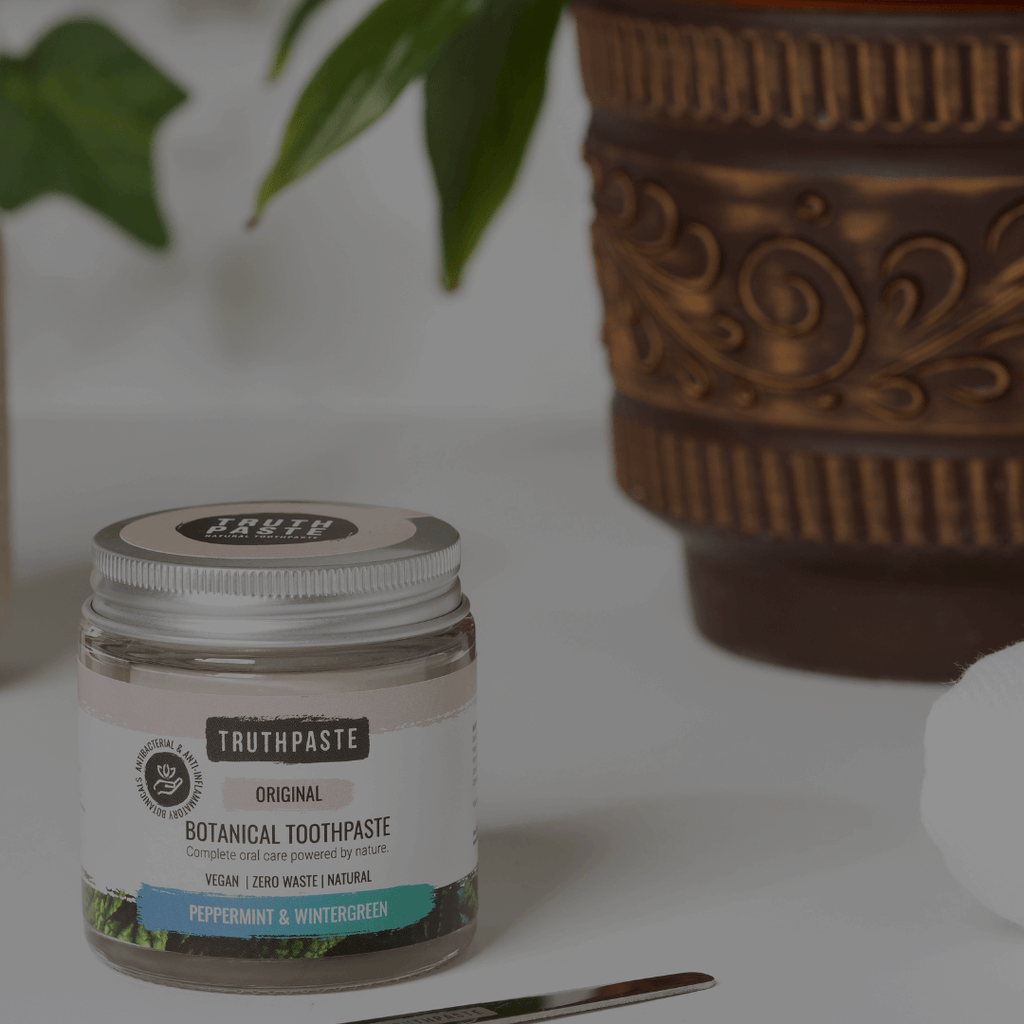
Supercharge your oral health
✔️ Farewell fuzzy teeth
Don’t just remove plaque, prevent it. Anti-plaque botanical ingredients will make your mouth feel amazing all day, every day.
✔️ Feel amazingly fresh all day, every day.
Our antibacterial organic botanicals will leave your breath fresher for longer.
✔️ Deep but gentle clean
Bentonite based toothpaste for a naturally superior clean, without damaging enamel.
Choose your flavoursLatest News
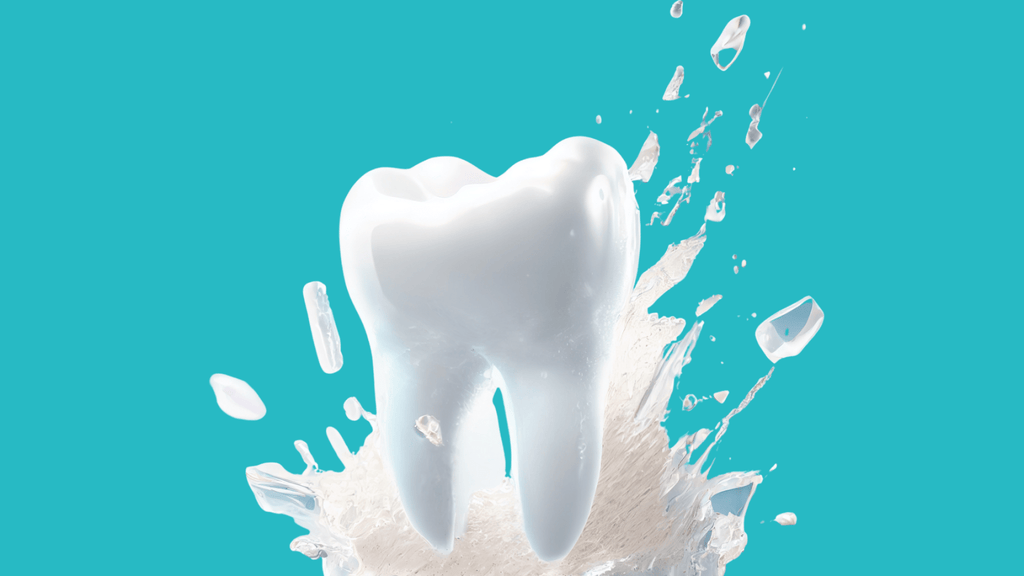
Why Most Toothpastes Can’t Repair Enamel (and What Can)
Enamel is the hardest substance in the human body — but it isn’t invincible. Every day, acids from food and drink, plaque, and even over-brushing wear it down. Unlike bone, enamel can’t naturally regrow, which is why enamel loss leads to sensitivity, cavities, and yellowing over time.
Most toothpastes only protect what’s left. Fluoride, the standard active in mainstream formulas, helps resist acid attacks but doesn’t rebuild enamel. And with supermarket pastes made up of 95% filler ingredients — foaming agents, flavourings, and stabilisers — there’s little room for minerals that actually strengthen teeth.
That’s where hydroxyapatite comes in. Hydroxyapatite is the mineral your teeth are made of, and clinical studies show it can repair weakened enamel by replenishing lost minerals and sealing microscopic pores.
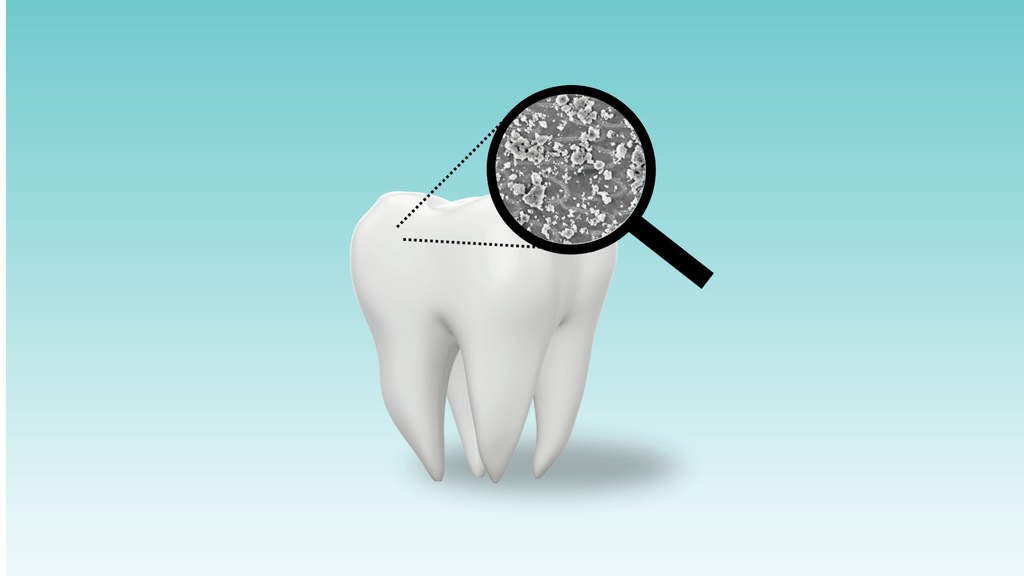
Is hydroxyapatite safe?
Hydroxyapatite is one of the hottest ingredients in oral care — but is it safe? In this article, we explore the science, the safety research, and why it’s a trusted mineral for repairing and protecting enamel.
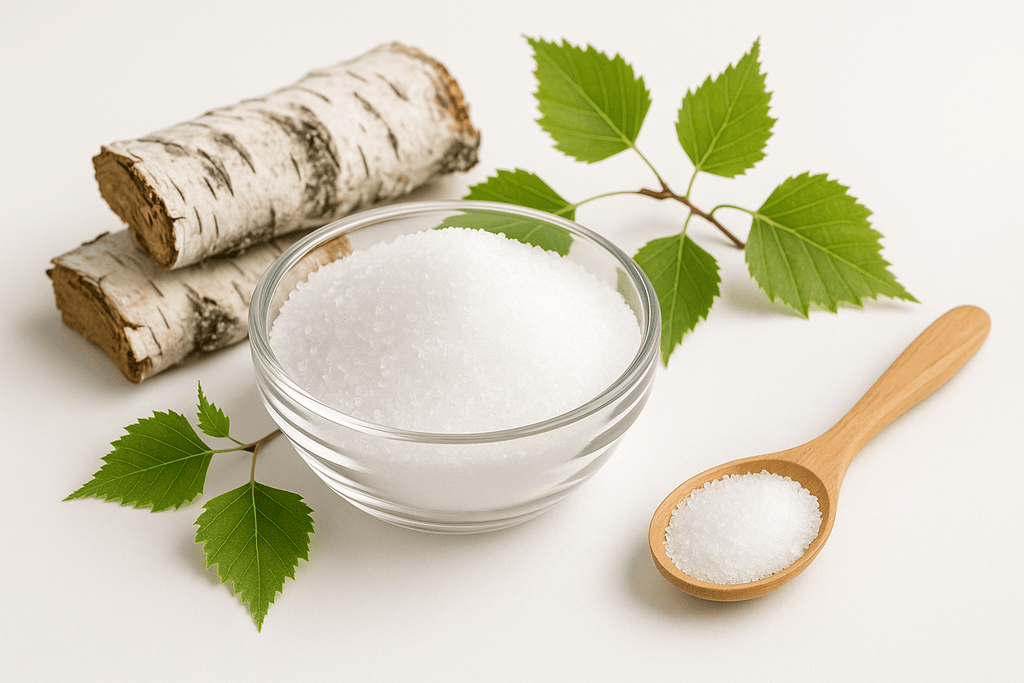
Sweeteners and Your Gut: Unpacking the Surprising Science Behind Saccharin, Sucralose & Stevia
Online, “sweetener” has become a catch-all for “bad for you.” Many consumers lump together all sugar substitutes as harmful, creating fear around even the most scientifically promising options. This blanket fear is amplified by sensational headlines and misinformed social media posts.
But the science paints a more nuanced picture—some sweeteners may harm your health, while others can be beneficial—even prebiotic. Let's dive deeper.
Let customers speak for us
